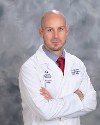Day 2 :
Keynote Forum
Paulo Roberto Santos
Federal University of Ceara, Brazil
Keynote: Spirituality, quality of life and depression among hemodialysis patients
Time : 09:00-09:30

Biography:
Paulo Roberto Santos is Associate Professor at Federal University of Ceará, Brazil, and coordinates the Graduate Program in Health Sciences of the Sobral Faculty of Medicine. His main research interests are self-perceived outcomes (quality of life, depression, coping strategies and sexuality) among end-stage renal disease patients.
Abstract:
Low quality of life and high prevalence of depression are universally found among end-stage renal disease patients undergoing hemodialysis. In the past decade, technical advances of dialysis therapy have not been sufficient to improve the quality of life or decrease the prevalence of depression. Many variables associated with poor quality of life and depressive symptoms are not modifiable, like gender, age, and comorbidity. The relationship of spirituality and well-being is well documented in the literature. In the nephrology area, there are reports of better quality of life and less depression among dialysis patients with a greater perception of spirituality and religiosity. Nevertheless, more studies on spirituality are necessary among hemodialysis patients, especially because to some extent spirituality can be modified, and strategies aiming at engaging patients in discussions about their spiritual concerns can be implemented by the care team. We conducted an observational study comprising 161 end-stage renal disease patients undergoing hemodialysis in the only dialysis center in the northern Ceará state, northeast Brazil. Spirituality was assessed by the Religious Coping Activity Scales (RCOPE). Depression was screened by the 20-item version of the Center for Epidemiologic Studies Depression Scale (CES-D). Quality of life was evaluated through the Brazilian version of the Medical Outcomes Study 36-Item Short Form Health Questionnaire (SF-36). We found depression rates of 27.3%. Positive religious coping was negatively correlated with depression score (r=-0.200; p=0.012), meaning the more positive religious coping was, the lower the depression score tended to be. In addition, positive religious coping was an independent protective factor for depression (OR=0.132; CI 95%=0.021-0.910; p=0.039). Regarding quality of life, positive religious coping was able to independently predict better quality of life scores related to the following dimensions: bodily pain (b=14.401; p=0.048) and vitality (b=12.580; p=0.022). On the other hand, negative religious coping independently predicted worste score of the dimension social functioning (b=-21.158; p=0.017). Our results add further evidence that spirituality is a powerful mediator of quality of life and depression. Clinical implications for the care team are:Patients using religious resources should be encouraged, while psycho-spiritual interventions should be tried targeting religious struggle (negative religious coping) among hemodialysis patients.
Keynote Forum
Lois J Arend
Johns Hopkins University, USA
Keynote: Novel roles for PKD genes in the reproductive tract and in stromal cells of the kidney
Time : 09:30-10:00

Biography:
Lois Arend is Associate Professor of Renal Pathology at Johns Hopkins University School of Medicine. Dr. Arend received a PhD in Physiology and her MD atrnMichigan State University, then completed residency and a fellowship in renal pathology at The University of Michigan. Dr. Arend has studied renal function andrndisease in areas such as the role of adenosine in normal kidney function, development of the kidney, and cystic kidney disease, and the pathology of vascular access and transplantation for 30 years, publishing over 65 peer-reviewed articles, reviews, and chapters in major textbooks such as Heptinstall’s Pathology of the Kidney. She is Director of Clinical Fellowship training for the Department of Pathology at Johns Hopkins University.
Abstract:
Autosomal dominant polycystic disease (ADPKD) is a very common genetic disease, affecting up to 1 in 500 people. Many affected individuals progress to end-stage renal disease (ESRD) by the fifth to sixth decade of life. Mutations in the Pkd1 gene account for over 85% of ADPKD cases, while the Pkd2 gene is believed responsible for the remainder. Despite this wellestablishedrngenetic basis, current mouse models do not adequately explain the clinical progress or reveal underlying pathogenic mechanisms in human ADPKD. Many of these models have been used as the basis for developing therapeutic strategies that have failed to produce results in subsequent clinical trials.rnWe have used novel approaches to investigate the renal and reproductive tract abnormalities in mice, opening new avenuesrnfor understanding PKD and its associated morbidities. Infertility and reproductive tract abnormalities in male ADPKD patientsrnare very common and have higher incidence than in the general population. In mouse models we developed, we identify novelrndefects in the reproductive tract that could form the basis for some of these issues. In addition, a mouse model targeting Pkd1rngene deletion in the stromal cells of the kidney offers a more faithful reproduction of human ADPKD than currently availablernmodels. In particular, these mice are being used to investigate the hypothesis that a “third hit” occurs during childhood or earlyrnadulthood leading to faster, more vigorous, or larger cyst development and greater risk of progression to ESRD.The study of ADPKD has stagnated due to a lack of models that reproduce the human condition for understanding pathogenesis, progression, and targeting therapies. These models may provide new mechanistic understanding of ADPKD and hold promise as a foundation for new therapeutic strategies.
- Track 1: Renal Dialysis and Procedures
Track 2: Renal Genetic syndromes
Track 3: Chronic and End Stage Renal Diseases
Session Introduction
Varun Agrawal
University of Vermont, USA
Title: Use of statins in chronic kidney disease
Time : 10:50-11:15

Biography:
Varun Agrawal is an Assistant Professor of Medicine (Nephrology) at the University of Vermont, Burlington, Vermont USA. He is board certified in Internal Medicine and Nephrology. He is a Fellow of the American Society of Nephrology and American College of Physicians. His areas of interest are chronic kidney disease, hypertension, kidney stones, patient education, provider education, medical education and obesity. He has published many peer-reviewed journal articles in these areas and has performed numerous peer-review activities for a variety of nephrology and medicine journals. He is actively involved in teaching medical students, residents and Nephrology fellows. He has developed a new curriculum for medicine residents rotating in Nephrology that has been well received and appreciated at his institute.
Abstract:
Cardiovascular disease is the major cause of morbidity and mortality in patients with chronic kidney disease. Statins (or HMG-CoA reductase inhibitors) have been shown in clinical trials to reduce cardiovascular events in chronic kidney disease, but are not effective in patients receiving dialysis. While statins are clearly indicated in patients with coronary artery disease or diabetes mellitus to reduce cardiovascular risk, it is not clear if patients with chronic kidney disease without these cardiovascular risk factors benefit from receiving statin therapy. Professional organizations provide different guidelines for use of statins in chronic kidney disease that may confuse the primary care physicians. Current evidence on use of statins in chronic kidney disease will be reviewed. Expert recommendations on how to optimally reduce cardiovascular risk with statins in chronic kidney disease will be provided.
John D Sullivan
Boston University, USA
Title: Creating an oligopoly in the treatment of end stage renal disease and the subsequent impact on home hemodialysis therapies
Time : 11:15-11:40

Biography:
John D Sullivan is an expert in health care policy, finance, and asset valuation. Prior to joining Boston University, he worked for Fresenius Medical Care, completing the acquisitions of over one hundred health care companies with an estimated value of over $5 billion. In 2008, Sullivan co-founded Reliant Renal Care with private equity funding. He has provided strategic guidance for many of the largest health care organizations in the United States. Sullivan presently teaches mergers and acquisitions, corporate finance, investments, and financial markets and institutions.
Abstract:
End Stage Renal Disease impacts the lives of almost 600,000 Americans requiring hemodialysis, peritoneal dialysis or transplantation for continued survival. Incidence and prevalence of this disease is increasing as a by-product of the epidemic of obesity resulting in higher rates of diabetes and hypertension as well as the general aging population. Hailed in 1972 as a first step towards universal health care, the ESRD program has been an expensive undertaking with expenditures of approximately 6% of the Medicare budget for less than one half of one percent of the Medicare population. The government’s response to the increase expenditure has been to reduce cost outlays through an erosion of reimbursement through inflation as well as shifting to a bundled payment system. As a consequence of this policy, consolidation has been aggressive during the past thirty years creating two large dialysis chains that control over 60% of the market with a massive investment in outpatient clinic infrastructure as well as medical product manufacturing to support the outpatient treatment setting. Asset leverage has also led to lower costs through economies of scale, but not without treatment option side effects. While costs have been somewhat contained on a per treatment basis in the face of increased volume demand, new and old therapies have been suppressed including home therapies such as peritoneal dialysis and home hemodialysis attributed to an oligopolistic environment. This paper will track the evolution of the creation of this oligopoly and reflect on the impact on home therapy treatment options for patients.
Narender Goel
Montefiore Medical Center & Albert Einstein College of Medicine, USA
Title: Vascular Access Placement in Patients with Incident CKD Stage 4 and 5 attending an Inner City Nephrology Clinic: A Cohort Study and Survey of Providers
Time : 11:40-12:05

Biography:
Dr Narender Goel has completed his Nephrology fellowship from Montefiore Medical Center & Albert Einstein College of Medicine, NY. He is presently working as a Nephrologist and Clinical Hypertension Specialist at Middletown Medical PC and Orange Regional Medical Center, NY. He is also an Adjunct Clinical Assistant Professor of Internal Medicine and Nephrology at Touro College of Osteopathic Medicine, New York, NY. He is also a founder of non-profit nephrology global website.His primary interests include mineral bone disorder, electrolytes, hypertension and vascular access.
Abstract:
The majority of incident hemodialysis (HD) patients initiate dialysis via catheters. We sought to identify factors associated with initiating hemodialysis with a functioning AV access. We conducted a retrospective chart review of all adult patients, age >18 years seeing a nephrologist with a diagnosis of CKD stage 4 or 5 during the study period between 06/01/2011 and 08/31/2012 and conducted a survey of providers about the process. The 221 patients (56% female) in the study had median age of 66 years (IQR, 57-75) and were followed for a median of 1.26 years (IQR 0.6-1.68). By the end of study, 48 patients had initiated dialysis. Thirty-four of the patients started dialysis with a catheter (1 failed and 10 maturing AVFs), 9 with an AVF and 5 with an AVG. During the study period, 61 total AV accesses were placed (54 AVF and 7 AVG). A higher urinary protein/ creatinine ratio and a lower eGFR at study entry were associated with AV access placement and dialysis initiation. A greater number of nephrology visits were associated with AV access creation but not with the initiation of dialysis. Hospitalizations and hospitalizations with an episode of acute kidney injury were strongly associated with dialysis initiation (odds ratio (OR) 13.0 (95% confidence interval (CI) 2.3 to 73.3, p-value = 0.004) and OR 6.6 (95% CI 1.9 to 22.8, p-value = 0.003)). Nephrologists may not be referring the correct patients to get an AV access surgery. A hospitalization with AKI is strongly associated with the need for dialysis in patients with stage 4 and 5 CKD.
Julio G Davalos
University of Maryland , USA
Title: Current guidelines and trends for kidney stone management; Advancing care of renal stone disease in the united states – Optimizing surgical outcomes and focusing on prevention
Time : 12:05-12:30

Biography:
Julio Davalos is the Medical Director of the Chesapeake Urology Kidney Stone Center. He is the Director of Endourology and Kidney Stone Disease at the University of Maryland Baltimore Washington Medical Center. He has trained over 60 community urologists on percutaneous stone surgery and is actively involved with resident education. He has several publications in the area of stone disease and has particular interest in advanced surgical techniques for the treatment of complex stones. In addition he has developed a comprehensive metabolic program at Chesapeake Urology and is focused on stone prevention.
Abstract:
Kidney stone disease is a common malady affecting approximately 1 in 11 people in the United States (19% men and 9% women) by age 70 years, with a cost exceeding two billion dollars annually. Prevalence has demonstrated a significant rise over the last 20 years and stones are likely to recur in at least 50% of patients within 10 years of the first occurrence. Renal stone disease is primarily a renal physiologic abnormality and approximately 15% of stones require surgical intervention. Stone disease is one of the primary bridge points between the fields of nephrology and urology. A comprehensive review of the American Urological Association guidelines for initial evaluation, conservative versus surgical intervention, metabolic evaluation and medical treatments, optimal surgical modalities, and suggested follow-up for stone formers will be detailed. Current advancements in the surgical treatment of stone disease including an outlook toward contemporary management and future trends in urological stone treatment will also be reviewed. One recent modification in the endoscopic treatment of stones is the advent of “stone dusting.” This technique uses commonly available holmium laser technology to fragment stone into minute particles that can easily pass through the urinary tract. We present our current protocol and early experience with this approach to surgical stone management. Percutaneous Nephrolithotomy (PCNL) is a well-established surgical treatment option for large and complex upper urinary tract kidney stones. PCNL has traditionally been performed as an inpatient procedure with the aid of interventional radiology to provide renal access and nephrostomy tube drainage. We present our series of outpatient PCNLs performed with the urologic surgeon obtaining access and without the routine placement of nephrostomy tube for drainage post-operatively.
H Sudarshan Ballal
Manipal Hospitals, India
Title: Renal replacement therapy in the ICU: Time to end the controversy
Time : 12:30-12:55

Biography:
Dr. H. Sudarshan Ballal was the best outgoing student (Blue Ribbon awardee) of the Kasturba Medical College, Manipal and a recipient of many Gold Medals in MBBS and MD which he completed at the age of 23 years and later had his further training in the USA and had the distinction of being one of the few to be triple Board certified in Internal Medicine, Nephrology & Critical Care. He has the rare distinction of being appointed as Professor of Medicine with St. Louis University School of Medicine (USA) and is also Adjunct Professor of Medicine at Manipal University.He was conferred the fellowship of the Royal College of Physicians, London for his contribution in Medicine.
Abstract:
Acute Kidney Injury (AKI) is defined as a sudden, sustained decline in glomerular filtration rate (GFR), usually associated with uremia and a decline in urine output. The mortality for AKI patients in an ICU setting needing RRT is estimated to be 50% to 70%. Since the introduction of hemodialysis by Kolff in the early 1940s, intermittent renal replacement therapy (IRRT) was offered as a bridge until recovery of kidney function. In the 1980s, Kramer and colleagues introduced continuous renal replacement therapy (CRRT) as an alternative. Since then, few topics in nephrology have been the subject of so many randomized controlled trials (RCTs), meta-analyses and reviews. The theoretical advantages of CRRT mentioned includes, increased time-averaged dialysis dose, less hemodynamic instability and removal of high molecular weight solutes such as inflammatory cytokines. From its early days, questions were raised as to which of CRRT or IRRT was related to better outcomes. The general perception was that the continuous approach, due to its slow protracted nature, would result in better outcomes. At least seven published RCTs and three meta-analyses were unable to demonstrate a difference in outcome between both approaches, with a reported relative risk of 0.99. The Cochrane Meta analysis of 15 studies (1550 patients) showed that CRRT did not differ from IRRT with respect to in-hospital mortality, ICU mortality, number of surviving patients not requiring RRT, hemodynamic instability or hypotension needing escalation of pressor therapy. Patients on CRRT were likely to have significantly higher mean arterial pressure (MAP) and higher risk of clotting dialysis filters. The application of CRRT in combating severe fluid overload is widely popular despite the evidence. CRRT has also been proposed as the preferred option for combined acute renal and hepatic failure and acute brain injury because of prevention of cerebral edema. Arguments in favour of IRRT are practical considerations like user-friendliness, limitation of expenses, restriction of bleeding complications; and small solute removal in acute life threatening conditions.In summary, CRRT and IRRT are equivalent dialysis strategies. Both therapeutic strategies should not be considered as competitors, but rather as alternatives, usage depending on the unit expertise and the metabolic or the fluid balance needs of the patient.
Dmytro D Ivanov
Shupky National Medical Academy, Ukraine
Title: Development of new drugs or OMICS-diagnostics of treatment failure
Time : 13:55-14:20

Biography:
Dmytro Ivanov, 1964, MD, PhD, Prof in Nephrology, Chief of Nephrology and RRT Shupyk National Medical Academy of Postgraduate Education, Kiev, Ukraine. Has 26 years’ experience in nephrology and pediatric nephrology. He has published more than 400 papers, 15 text- books, ERA-EDTA member since 1997.
Abstract:
The aim - identifying the biological trends in formation of treatment efficacy in various kidney diseases. 20-year observation of treatment results in 4 groups: urinary tract infection - UTI (5643) patients, glomerulonephritis, nephrotic syndrome - NS (464), lupus nephritis - LN (68), and month from the treatment beginning (1) and 1 year follow-up (2). For each nosology isolated characteristics that determine the effectiveness of therapy in steps 1 and 2 were adjusted. For UTI – microbe and antibiotics sensitivity was 87 ± 4% (1), recovering - 96 ± 2% (2),total - 82% (RR 1.08 0.98-1.17 95%). NS steroid sensitivity was 49 ± 7% (1) and the remission79% ± 3 (2), total - 72% (RR 1,03, 95% 0,97-1,09). In LN - remission was observed in 44 ± 4% (1) and 68% ± 3 (2), in total 63% (RR 1,28, 95% of 1.11-1.41). In CKD - reduction of albuminuria ascertained at 69 ± 2% (1) and GFR preservation- 87 ± 2% (2), a total of 83% (RR 1,08, 95% 0.98-1.17). As a result, depending on the nosology, 3 months efficacy was 96-57% (71 ± 7), 1 year - 91-69% (75 ± 3). The average of efficiency therapy was 74.8%. Thus, the response to therapy in 1 year follow-up was the dominant sign in a ratio of 3:1 to non response subjects (Mendelian inheritance). Conclusions. Modern therapy provides cure / remission in 75% of nephrology patients, which corresponds to the dominant hence inheritance trait of population. Failure of treatment in 25% of patients is not due to lack of efficiency, population- recessive traits. Seems that marginal efficiency of existing treatment facilities in general has already been exhausted. Development of new drugs are likely to be ineffective without seeking genetic mechanisms/markers leading to the development of renal process itself, rather than improve the sensitivity to the drug. In our opinion, OMICS-diagnostics detect a marker (s), allowing understanding why a given individual has developed kidney disease, will be crucial in the treatment of nephrology patients.
Alison Kent
Canberra Hospital, Australia
Title: What is the risk of chronic kidney disease after acute kidney injury in the neonatal period
Time : 14:20-14:45

Biography:
Prof Alison Kent commenced her pediatric training in Adelaide, Australia, completing her Neonatal Fellowship at McMaster University, Ontario, Canada. She is a Senior Consultant at the Centenary Hospital for Women and Children, Canberra Hospital, Australia. She completed her MD in 2009, her thesis based on neonatal blood pressure and renal injury risks from being born preterm. She has over 50 peer reviewed publications; she is a founding member of the Executive Committee of the Neonatal Kidney Collaborative, a group of Nephrologists and Neonatologists investigating the incidence of acute kidney injury in the neonatal population and its long term consequences.
Abstract:
The incidence of acute kidney injury (AKI) in neonates has been poorly studied, but recent studies suggest ranges from 18-40%. Risk factors for AKI in the neonatal population include sepsis, perinatal asphyxia and ECMO (extracorporeal membranous oxygenation). Mortality rate of neonates who have AKI is significantly elevated with a range of 45-70%. Over the last 15 years, studies of acute kidney injury in the paediatric and adult population has shown both increased mortality rates as well as risk of developing chronic kidney disease later in life. The preterm neonatal kidney is extremely vulnerable to injury with glomerulogenesis ongoing after birth, as well as other cardiovascular and respiratory compromises. Defining AKI in neonates has been difficult due to maternal creatinine influences in the first 24-48 hours and the significant changes that occur in the glomerular filtration rate in the first few weeks of life. A new definition of neonatal AKI has been proposed based on modified KDIGO (Kidney Diseases: Improving Global Outcomes) criteria, which will allow comparison of data between patient groups, neonatal units and countries. With recent literature suggesting premature neonates, especially those with AKI during the early neonatal period, are at increased risk of long-term renal insufficiency, an international group of nephrologists and neonatologists has formed the Neonatal Kidney Collaborative. This group is currently undertaking the multi-center international AWAKEN (Assessment of Worldwide Acute Kidney injury Epidemiology in Neonates) study. This presentation will discuss AKI in the neonatal period, risks of premature birth on renal development, and provide progress on the AWAKEN study.
Rajendra Bhimma
Natal University, South Africa
Title: UTI in Children: A changing paradigm
Time : 14:45-15:10

Biography:
Rajendra Bhimma has received his PhD in Medicine from the University of Natal University during the period of 1999 to 2002. Currently, he is working as Paediatrics and Child Health at this University. He has successfully completed his Administrative responsibilities as Associate Professor of Paediatrics and Principal Specialist. His research has included kidney diseases in children. Based on this research and fellowship training he has received several awards and honors, He is serving as an editorial member of several reputed journals like The World Journal of Nephrology and Asian Journal of Nephrology & expert Reviewers for journals like American Journal of Kidney Disease, Pediatric Nephrology, Journal of Therapeutics and Nephrology etc. He has authored over 50 peer reviewed research articles and has written 5 chapters for books.
Abstract:
Purpose: To review the changing paradigms in the diagnosis, investigation and management of urinary tract infections (UTIs) in children beyond the neonatal period. Methods: A literature search was done using PUBMED, EBSCO host database and GOOGLE SCHOLAR of all articles including reviews and guidelines on UTIs in children for the last ten years. A total of 2 725 articles including review articles and guidelines published over the last 10 years were searched and reviewed.
Thomas Ryzlewicz
Via Medis Dialysis center, Germany
Title: online HDF - a concept for baltimore
Time : 15:35-16:00

Biography:
Thomas Ryzlewicz at 66 years, born in West-Berlin (Germany). Nephrologist since 40 years with regular clinical work with RRT Patients. In 1974 he used several of the first Dialysis Set-Up’s (Travenol 120 Batch System, Milton Roy B II, Gambro AK 3). 1978 Bag-Hemofiltration done (with the Equipment of 3 Blood Pumps, one Bed Scale and a Cup to measure the Filtration Rate (with a Stop-Watch).
Abstract:
online-Hemofiltration (Shaldon, Gambro AK 10-Dextran Blue System with 20 Ultrafilters). 1991 Prototype of AFB (Acetate Free Biofiltration). 1991 Prototype for cavHD for ICU Patients to the German TÜV for permission as a Prototype (> duration of one entire year!). 1991 conversion of a Hemofiltration Monitor from TMP-driving to Weight-driving to perform cvvH in ICU Patients. 1993 first use of the online Monitor of today as a Prototype (Gambro AK 100 ultra). 1995 contact with the MARS-Group (Stange and Mitzner, Rostock / Germany, “Albumin-Dialysis” in Hepatic Coma). I introduced to them the conversed cvvH-Monitor, in order to treat these severe ill Patients (> Hepatic Coma) with sterile Fluid. Development of an own Bloodline (> very much reduced contact between Blood and Air) in 2007 (BHR GmbH). First Patents in 2010. In 2012 Joint Venture Company with Brook Herderson Group (Oxyless Ltd., Reading, GB). - 25 years employed at the KfH (first Dialysis Provider in Germany), in between 2 years in a Physiologic Institute.
Ihab Wahba
University of Pennsylvania, USA
Title: Importance of venous congestion and perfusion pressure in acute kidney injury and the cardiorenal syndrome
Time : 16:00-16:25

Biography:
Ihab Wahba, MD is Associate Professor of Clinical Medicine at the University of Pennsylvania Perleman School of Medicine, Philadelphia, PA. He received his Nephrology Training at the Oregon Health and Science University. He has practiced Nephrology in both the academic and private settings over the last 16 years. He has published many scientific manuscripts and book chapters in the field of clinical nephrology encompassing the disciplines of acute kidney injury, drug nephrotoxicity and dosing, obesity, and renal dysfunction in the setting of cardiac dysfunction.
Abstract:
Renal dysfunction is very common in patients with heart failure and is associated with poor longevity and poor overall prognosis.The term “cardiorenal syndrome” has been given to this condition to highlight its importance. The pathophysiology of acute kidney injury (AKI) and chronic kidney disease in the setting of heart failure is complex and poorly understood, and therefore, treatment options are not clearly defined. Recent observational data challenge the long-held hypothesis that renal dysfunction in that setting is mainly due to reduced cardiac output. This presentation will review evidence published both in the older literature and in recent studies that expand our understanding of this complex syndrome, with an emphasis on the role of venous congestion and low perfusion pressure in patients with the cardiorenal syndrome. Real case scenarios will be presented to highlight the pathophysiology and to propose effective treatment strategies. The role of medications and other factors that are usually overlooked yet may be crucial in the pathophysiology AKI and diuretic resistance in the setting of venous congestion and low perfusion will be emphasized.
Satish Kumar Kolar Venkatesh
Baby Memorial Hospital Ltd., India
Title: Is there a better outcome for posterior urethral valve (PUV) presenting antenatally? A unicentre experience in 81 children
Time : 16:25-16:50
Biography:
Satish Kumar Kolar Venkatesh has completed his Pediatric Surgery Training in the year 2006 from Mumbai, India and has worked as an Overseas Fellow for 2 years in Perth, Australia. After returning back to India, he has been practising as a Consultant in corporate hospitals and is engaged in clinical research/audits. He has presented more than 15 papers in national and international conferences and published more than 14 papers in reputed journals. He has special interest in embryogenesis of surgically correctable urological malformations in children.
Abstract:
Renal dysfunction is very common in patients with heart failure and is associated with poor longevity and poor overall prognosis. The term “cardiorenal syndrome” has been given to this condition to highlight its importance. The pathophysiology of acute kidney injury (AKI) and chronic kidney disease in the setting of heart failure is complex and poorly understood, and therefore, treatment options are not clearly defined. Recent observational data challenge the long-held hypothesis that renal dysfunction in that setting is mainly due to reduced cardiac output. This presentation will review evidence published both in the older literature and in recent studies that expand our understanding of this complex syndrome, with an emphasis on the role of venous congestion and low perfusion pressure in patients with the cardiorenal syndrome. Real case scenarios will be presented to highlight the pathophysiology and to propose effective treatment strategies. The role of medications and other factors that are usually overlooked yet may be crucial in the pathophysiology AKI and diuretic resistance in the setting of venous congestion and low perfusion will be emphasized.
Satish Kumar Kolar Venkatesh
Baby Memorial Hospital Ltd., India
Title: Is there a better outcome for posterior urethral valve (PUV) presenting antenatally? A unicentre experience in 81 children
Biography:
Satish Kumar Kolar Venkatesh has completed his Pediatric Surgery Training in the year 2006 from Mumbai, India and has worked as an Overseas Fellow for 2 years in Perth, Australia. After returning back to India, he has been practising as a Consultant in corporate hospitals and is engaged in clinical research/audits. He has presented more than 15 papers in national and international conferences and published more than 14 papers in reputed journals. He has special interest in embryogenesis of surgically correctable urological malformations in children.
Abstract:
Purpose: Posterior urethral valve (PUV) is a disease spectrum with varied presentation and prognosis, dependant to a large extent on pre-existing renal damage. Excluding those fetuses that are severely affected, early diagnosis and prompt intervention post-natally should theoretically be preventing further renal damage. With the uncertainty of outcome of fetal intervention, our aim should be to optimise treatment after birth. A series of 81 babies with PUV who presented antenatally is discussed here.Methods: This is a 10 year retrospective record review of all operated cases of PUV detected antenatally from a tertiary care hospital. The outcomes analyzed were pertinent to renal function, voiding dysfunction and complications.Results: Eighty four (42%) of 190 patients presented antenatally and 81 are included. The mean gestational age at diagnosis and intervention was 34±4.5 weeks and 130.5±170.9 days respectively. 70 (87%) were fulgurated and 11 had diversion. The nadir creatinine was significantly raised in babies who had oligohydramnios diagnosed in 2nd trimester and in those who were diverted. The data on follow up and continence in toilet trained patients are presented. Conclusion: All boys with antenatally diagnosed hydronephrosis should be followed closely to rule out PUV. Endoscopic therapy should be the initial modality of treatment. In patients with preserved renal function, the prognosis is good if managed early. A nadir creatinine at 6 months of 0.8 mg/dl should be predictive of excellent prognosis. Early postnatal therapy preserves renal function and may prevent late bladder deterioration. Our results should be useful in counselling prospective parents with antenatally suspected PUV.
Phuong Thu Pham
University of California, USA
Title: Clinical decision making dilemma: Liver alone or combined liver-kidney transplantation

Biography:
Phuong-Thu Pham is Professor of Medicine and Director of Outpatient Services of the Kidney Transplant Program at UCLA Medical Center. Her major areas of interest and research include recurrence of glomerular diseases following primary renal transplantation, new onset diabetes after transplantation, BK virus screening and management after kidney transplantation, the link between hypomagnesemia and renal function decline in patients with diabetes mellitus type 2 as well as in recipients of kidney transplant, and acute and chronic kidney injury following liver transplantation. Her interests in these topics have resulted in publications in well-known Nephrology textbooks and journals as well as invitations to speak at both national and international meetings. She has written over 20 book chapters for major Nephrology and solid organ transplantation textbooks including Comprehensive Clinical Nephrology, Textbook of Organ Transplantation, Transplantation of the Liver, Pancreas, islet, and stem cell transplantation for diabetes, Chronic Kidney Disease: Dialysis and Transplantation, and Handbook of Kidney Transplantation. She has also served as moderator for transplant-related conferences at the American Society of Nephrology and World Congress of Nephrology, editorial board member for the Case Reports in Nephrology and Transplantation Technologies and Research journals, and member of the organizing committee for the International Conference on Nephrology and Therapeutics.
Abstract:
With the introduction of the MELD score for the allocation of orthotopic liver transplant (OLT) in February 2002, a striking 278% increase in the number of simultaneous liver-kidney transplants (SLKT) was observed during the 9-year period post-MELD when compared with the preceeding 9-year in the pre-MELD era (pre- vs. post-MELD era, n= 1049 vs. 2914, respectively). For OLT candidates with simultaneous end-stage kidney failure, SLKT is a well-established effective therapeutic option for virtually all suitable candidates. However, there have been no well-defined guidelines to determine whether a kidney transplant should be offered to OLT candidates who have chronic kidney disease (CKD) or prolonged acute kidney injury (AKI) secondary to hepatorenal syndrome (HRS) or acute tubular necrosis (ATN) while awaiting a liver transplant. Specific challenges in the decision making process include the accurate assessment of the degree of existing renal dysfunction in those with CKD, progression of established CKD, and the prediction of the extent of renal function recovery in those with AKI with or without underlying CKD. Currently existing consensus guidelines for SLKT in OLT wait-listed candidates are presented followed by the author’s opinion on identification of candidates who are best suited for double-organ transplantation.
Edward J. Filardo
Brown University School of Medicine, USA
Title: A putative role for the G protein-coupled estrogen receptor-1, GPER-1, in the renoprotective effects of estrogen

Biography:
Dr. Filardo is the Director of Research & Development at Radix BioSolutions, Ltd.. Previously, he served as faculty at the Brown University Medical School where his research group discovered the newly appreciated plasma membrane estrogen receptor, GPER-1. Studies by his group, revealed its molecular mechanism of action and desensitization. Moreover, their published works indicate that GPER-1 plays a homeostatic role in neural and renal tissue and its expression is positively associated with advanced breast cancer.
Abstract:
Estrogen promotes renoprotective effects that are linked to the G-protein-coupled estrogen receptor-1 (GPER-1). Our studies have shown that GPER-1 immunoreactivity is primarily localized in distal convoluted tubules and the Loop of Henle (stained with Tamm-Horsfall Protein-1). Lower GPER-1 expression is observed in proximal convoluted tubules marked with megalin, and GPER-1 is not readily detected in collecting ducts. Plasma membrane fractions prepared from whole kidney tissue or HEK293 cells expressing recombinant human GPER-1 (HEK-GPER-1) display high-affinity, specific [3H]-17ï¢-estradiol ([3H]-E2) binding, but no specific [3H]-aldosterone binding. In contrast, cytosolic preparations exhibit specific binding to [3H]-aldosterone but not to [3H]-E2, consistent with the subcellular distribution of GPER-1 and mineralocorticoid receptor (MR) in these preparations. Aldosterone and MR antagonists, spironolactone and eplerenone, failed to compete for specific [3H]-E2 binding to membranes of HEK-GPER-1 cells. Furthermore, aldosterone did not increase [35S]-GTP-ï£S binding to membranes of HEK-GPER-1 cells, indicating that it is not involved in G-protein signaling mediated through GPER-1. During the follicular phases of the estrus cycle, GPER-1 is upregulated on renal cortical epithelia and localized to the basolateral surface during proestrus and redistributed intracellularly during estrus. GPER-1 is down-modulated during the luteal phases of the estrus cycle with significantly less receptor on the surface of renal epithelia, and as measured by gel electrophoretic analysis. Our results demonstrate that GPER-1 is associated with specific estrogen binding and not aldosterone binding and that GPER-1 expression is modulated during the estrus cycle which may suggest a physiological role for GPER-1 in the kidney during reproduction. Presenting author.
Samy L Habib
University of Texas , USA
Title: Kidney atrophy vs hypertrophy in diabetes: Which cells are involved?

Biography:
Samy L Habib has completed his Ph.D. at Roswell Park Cancer Center, Buffalo, NY and was trained at University of California, Irvine, University of Texas, Austin, TX and University of Texas Health Science Center, San Antonio, TX. He has published more than 45 papers in reputed journals and serving as an editorial board member and Editor of 14 Journals. He is associate professor at UTHSCSA and holds Research Scientist position at the South Texas Veterans Health Care System at Audie Murphy VA Hospital. He is a recipient of several research grant awards from American Diabetes Association, American Heart Association, National Kidney Foundation, New Investigator Award and Merit Review Award from Veterans Affairs, and Pilot Research Award from NIH/NIDDK. He has been a regular member of several study sections for Department of Defense.
Abstract:
Renal enlargement, one of the first structural changes in diabetic nephropathy (DN), is due to the hypertrophy of existing glomerular and tubular cells rather than to cellular proliferation. The initial tubular epithelial cell hypertrophy is considered “compensatory†and “adaptive†hypertrophy. Hypertrophic cells are arrested in the G1-phase of the cell cycle and increase protein and RNA content, but do normally not replicate their DNA. Each kidney contains about a million nephrons, which are the basic functional units of the kidneys. Increase in renal size, predominantly due to proximal tubular epithelial cell hypertrophy. On the other hand, kidney atrophy results from loss or inadequate circulation of nephrons. The renal veins and arteries start to shrink because of the loss of the function of the kidney. A loss of nephrons or abnormal nephron function is most likely to have an adverse effect on the kidney function as well as could lead to shrink the kidney. However overtime, tubular cell hypertrophy is associated with the subsequent infiltration of macrophages/monocytes of T and fibroblast cells into the tubulointerstitial space, which results in tubular atrophy and tubulointerstitial fibrosis. The rate of deterioration of kidney function shows a strong correlation with the degree of tubulointerstitial fibrosis. Alterations in renal structure may occur that are not specific to nephropathy but reflect a consequence of long-standing diabetes/hyperglycemia. The type of renal cells in atrophy and hypertrophy in diabetes will be evaluated.

Biography:
Abbott received his medical degree from Western University of Health Sciences, underwent 2 years general surgery training at West Virginia University/CAMC before entering urological surgery completing his residency at St John Providence in Detroit, MI. He served as Chief Resident 2012-2015 to complete his six-year residency and was selected into the highly competitive Endourology/Robotics fellowship at the University of California, San Diego. He is a well-published scientific author and has made countless presentations in local, regional, and international arenas. He has received numerous awards for his teaching prowess including the ACOS/Erwin Literary Award, the MOA Scientific Research Award, the AUA Thirlby Award, and the AOF Outstanding Resident of the Year award.
Abstract:
Kidney stone disease is a common malady affecting approximately 1 in 11 people in the United States (19% men and 9% women) by age 70 years, with a cost exceeding two billion dollars annually. Prevalence has demonstrated a significant rise over the last 20 years and stones are likely to recur in at least 50% of patients within 10 years of the first occurrence. Renal stone disease is primarily a renal physiologic abnormality and approximately 15% of stones require surgical intervention. Stone disease is one of the primary bridge points between the fields of nephrology and urology.A comprehensive review of the American Urological Association guidelines for initial evaluation, conservative versus surgical intervention, metabolic evaluation and medical treatments, optimal surgical modalities, and suggested follow-up for stone formers will be detailed. Current advancements in the surgical treatment of stone disease including an outlook toward contemporary management and future trends in urological stone treatment will also be reviewed.One recent modification in the endoscopic treatment of stones is the advent of “stone dusting.†This technique uses commonly available holmium laser technology to fragment stone into minute particles that can easily pass through the urinary tract. We present our current protocol and early experience with this approach to surgical stone management. Percutaneous Nephrolithotomy (PCNL) is a well-established surgical treatment option for large and complex upper urinary tract kidney stones. PCNL has traditionally been performed as an inpatient procedure with the aid of interventional radiology to provide renal access and nephrostomy tube drainage. We present our series of outpatient PCNLs performed with the urologic surgeon obtaining access and without the routine placement of nephrostomy tube for drainage post-operatively.
Aicha Merouani
University the Montreal, USA
Title: Renal replacement therapy in pediatric acute kidney injury

Biography:
Aicha Merouani was Professor at nephrology pediatrics in chez hopital ste justine ,his main interest is paediatric nephrology
Abstract:
Acute kidney injury is associated with increased risk of morbidity and mortality in patients. In children, it affects approximatively 5% of critically ill children. Neonate represents a higher risk population especially in the setting of cardiac surgery. No specific recommendations exists on the choice of the renal support for pediatric acute kidney injury based on outcomes; in fact, depending on centers, the preferred modality of renal replacement therapy is influenced by local expertise and financial resources. In pediatrics, the large variation in weight ranging from 1 to 60 kg as well as the small number of patients needing renal replacement therapy is a challenge for management, organization and maintenance of expertise. In our experience, the need for renal replacement therapy in patients with acute kidney injury when all modalities are employed is less than 15 cases/year. In neonate, renal replacement therapy is still difficult and peritoneal dialysis is most of the cases the best choice. This presentation provides an overview on current available practices in renal replacement therapy in children, and proposes a decision making algorithm for the use of renal replacement therapy in critically ill children with acute kidney injury.
Sorin Fedeles
Yale School of Medicine, USA
Title: Sec63 is an Hsp40 co-chaperone that is associated with the Sec61 translocon complex in the endoplasmic reticulum

Biography:
Sorin Fedeles is a postdoctoral associate in the nephrology department at the Yale School of Medicine. He grew up in Romania and came to the U.S. to study biochemistry and genetics. Following his B.A. at Hampshire College, he enrolled in the B.B.S. program at Yale where he obtained his Ph.D. in genetics in 2010.
Abstract:
Sec63 is an Hsp40 co-chaperone that is associated with the Sec61 translocon complex in the endoplasmic reticulum. Mutations in SEC63 cause polycystic liver disease in humans. Loss of Sec63 in mice induces cyst formation both in liver and kidney which is mitigated by polycystin-1 (PC1) overexpression. We now find that inactivation of Sec63 suppressed G protein–coupled receptor proteolysis site (GPS) cleavage-dependent maturation of PC1, showing an unexpected role of Sec63 in this autoproteolytic process that is critical for cystogenesis. Loss of Sec63 selectively activated the IRE1α-XBP1 branch of the unfolded protein response (UPR), and the inactivation of both Sec63 and XBP1 exacerbated the polycystic kidney phenotype in mice by markedly suppressing GPS cleavage of PC1. Enforced expression of the spliced XBP1s enhanced the GPS cleavage of PC1 in Sec63 deficient cells, suggesting that XBP1 activation normally serves to ameliorate the effects of Sec63 inactivation. XBP1 overexpression in vivo ameliorated cystic disease caused by a model of reduced PC1 function unrelated to Sec63, indicating a general protective role of XBP1s activity against cystic diseases resulting from defective PC1 maturation. Selective activation of IRE1α was also achieved by silencing of ERdj4, Sec61α and BiP, but not by depletion of calnexin, calreticulin or Grp94, implicating the dependence of IRE1α activation on select ER chaperones. Collectively, we demonstrated that Sec63 function regulates IRE1α-XBP1 activation, that Sec63 and XBP1 control PC1 maturation and that activation of XBP1 can protect against polycystic disease in the setting of impaired maturation of PC1.
Mujtaba Hasnain
Saint Barnabas Medical Center, USA
Title: Refractory anemia caused by parvovirus B19 infection in kidney transplant recipient

Biography:
Mujtaba Ali Hasnain, MD FACP is working as a Chief Fellow at Department of Nephrology, Newark Beth Israel Medical Center, New Jersey, USA. He completed his Internal Medicine Residency at Saint Barnabas Medical Center and also earned his degree in Medical Humanities at Drew University in New Jersey, in 2012 and also served as an Instructor in Medicine for students of Saint Georges Medical University in Grenada. Mujtaba was moved to U.S.A. for higher studies after he earned his MD with honors at the King Edward Medical University. He was awarded FACP during a prestigious convocation ceremony at American College. He has presented numerous research papers at both national and international conferences. His interview which was based on a unique phosphate binder was published in American Journal of Kidney Diseases in March 2015.
Abstract:
Anemia is a common problem in patients (pt) after kidney transplantation (KT). The causes of posttransplant anemia include ineffective erythropoietin, medication side effects, nutritional deficiencies, and, less commonly, infections. Human Parvovirus B19 (PV B19) is infrequently considered as a cause of anemia. It should always be considered as an etiology of resistant anemia in KT patients.Our pt is a 43 year old male with end stage renal disease due to Alport syndrome who received a living unrelated renal transplant. He was given simulect induction and finally his immunosuppression (IS) consisted of prednisone, tacrolimus and mycophenolic acid (MFA). He presented with fever and fatigue 6 weeks after the transplant. His hematocrit (hct) was found to be 18.7%. After 2 units of pack red blood cells (PRBC) transfusion, his hct improved. His iron stores, stool guaiac, vit B12 and serum folic acid levels were unrevealing. There was no evidence of hemolysis. His serum PV B19 PCR result was >100,000,000 copies/ml. Initially MFA was held but ultimately he was given intravenous immunoglobulin (IVIG) at 1g/kg due to refractory anemia and persistently elevated PV B19 level. He presented again within 1 week of receiving three doses of IVIG with exertional dyspnea and fatigue. He was transfused PRBCs again due to presence of severe anemia with hct of 16.1 %. Another dose of IVIG was given as his repeat serum PV B19 result was >2.6 million copies/ml. His subsequent hct levels has been stable with PV B19 levels now steadily decreasing.PV B19 is a single stranded DNA virus belonging to the family Parviviridea. Though not common, it can cause red cell aplasia in immunocompromised patients. When other causes of anemia have been eliminated, investigation into an acute PV B19 infection should be a part of the work up. Treatment of acute PV B19 associated red cell aplasia can be either conservative by decreasing IS or more aggressive with the use of IVIG.
- Track 4: Renal Transplantation and Immunology
Track 5: Nephritis, Onconephrology and Diabetic Nephropathy
Track 6: Metabolic,Fluid and Electrolyte Disorders

Chair
Dmytro D Ivanov
Shupky National Medical Academy, Ukraine

Co-Chair
Rouchon-Isnard Myriam,
AURA Auvergne, France
Session Introduction
Myriam Isnard-Rouchon
University of Auvergne, France
Title: Cardiovascular risk factors evolution during 6 months intra dialytic aerobic cycling program in hemodaylais patients: Hypertension, hyperlipidemia, hemoglobin stability and cardiovascular morbidity in hemodaylais patients
Time : 10:00-10:25

Biography:
Myriam Isnard-Rouchon has completed her MD in Clermont-Ferrand Auvergne University, her Master in Nutrition in Clermont II University. She works in a Non-Profit Association for Dialysis Patients in France. She is involved in clinical research, teaching at the University of Science and Technical for Physical and Sportive Activity, member of the Liaison Committee for Food and Nutrition in Auvergne. She has a good experience in physical activity for dialysis patients with 150 patients involved in her program among 400 dialysis patients (HD & PD), and begins an educational program for kidney transplant patients. The results are beginning to be published, and have been presented in the ASN Kidney Week in 2013 and 2014 (Posters).
Abstract:
Cardiovascular diseases are the main cause of morbidity and mortality in haemodialysis patients. Chronic Kidney Disease is a Cardiovascular Risk Factor (CVRF) associated with Hypertension (HTA), Dyslipidemia (low HDL), and Haemoglobin (Hb) variation. Oxidant stress also plays a central role in the development of cardiovascular diseases. Physical activity is well known in cardiology to allow a control of the CRF and a better survival. The impact of physical exercise on blood pressure levels, Dyslipidemia and Hb variation has been investigated intervention studies of cycling exercise program during haemodialysis. We already showed that intradialytic aerobic cycling training protocol exerts beneficial effects in CKD patients by reducing the most sensitive and reliable marker of OS (IsoP). The aim of this study was to determine if PA may allow a better control of the CVRF and decrease cardiovascular hospitalization.
Ana Laura Pimentel
Federal University of Rio Grande do Sul, Brazil
Title: Glycated hemoglobin in the screening and diagnosis of renal post-transplantation diabetes
Time : 10:25-10:50
Biography:
Ana Laura Pimentel is a PhD Candidate in Medical Sciences (Endocrinology) at Federal University of Rio Grande do Sul State (UFRGS, Brazil). She earned her MS in Medical Sciences (Endocrinology) from UFRGS. She is a pharmacist and has been working in the fields of diagnostic test accuracy, diabetes mellitus and renal transplantation.
Abstract:
Post-transplantation diabetes mellitus (PTDM) is a glucose metabolism alteration with high incidence during the first year after renal transplantation. It is associated with adverse outcomes, as graft rejection and cardiovascular disease. Available data in the literature show that, in renal transplant patients, the oral glucose tolerance test (OGTT) presents the highest diagnostic sensitivity for PTDM, although fasting plasma glucose (FPG) is the most requested test. Glycated hemoglobin (HbA1c) has been used in clinical practice for the monitoring of diabetes for more than 20 years. Since 2010, it has also been applied as a diagnostic test, with cut-off point of 6.5%. However, there are still controversies about the applicability of HbA1c results to detect PTDM. For now, OGTT should remain the reference test for PTDM once there is still no consensus on what HbA1c threshold to be applied for the screening and diagnosis of PTDM. The use of an algorithm with HbA1c test in combination with FPG and/or 2 h-plasma glucose after an OGTT seems to be an efficient strategy to diagnose or rule out PTDM in the early period after renal transplantation. The use of HbA1c cutoff points of ≥6.2% to rule in and ≤5.8% to rule out PTDM would reduce the number of OGTT in 85%.
Nasir Yunus Fulara
Grant Medical College & Sir Jamshedjee Jeejeebhoy Group of Hospitals, India
Title: Dyslipidemia in diabetic nephropathy
Time : 10:50-11:15

Biography:
Nasir Yunus Fulara is a Professor of Medicine at Delhi National Board and Medical Research Centre. He is also serving as a Senior Physician, Cardiologist & Diabetologist at Jaslok Hospital & Medical Research Centre Mumbai, Saifee Hospital Mumbai and Breach Candy Hospital & Medical Research Centre Since last 34 years till date. He is also attached to Wockhardt Hospital- Mumbai South, an association with Partners Medical International (PMI) Boston, USA. He has also served as a Professor of Advanced Medicine at Tibbia Medical College in Mumbai. He has published Nephrology Journals and papers in Indian Journals of Nephrology. He is a respected Member of American Diabetic Association (ADA), European Association for Study of Diabetes (EASD) and Opinion Leader from India in International Diabetic Forum (IDF), Association of Physician of India (API) and Research Society for the Study of Diabetes in India (RSSDI). He was conferred the fellowship of the Texas Institute of Heart-Houston, The German Diabetes Center-Germany, AMI Group of Hospital-London. He has been awarded with prestigious Best Physician, Rajiv Gandhi Gold Medal Award in 1992
Abstract:
Diabetic nephropathy is the leading cause of kidney disease in patients starting renal replacement therapy and affects about 40% of type 1 and type 2 diabetic patients. It increases the risk of death mainly from cardiovascular causes and is defined by increased urinary albumin excretion in the absence of other renal diseases. Hyperglycemia, increased blood pressure levels and genetic predisposition are the main risk factors for the development of diabetic nephropathy. Recent epidemiological research revealed that dyslipidemia is also a risk factor for development and progression of diabetic nephropathy. The effect of Dyslipidemia on renal function can be explained by ‘lipid nephrotoxicity’ hypothesis. Under this hypothesis, mesangial proliferation caused by accumulation of lipoprotein into mesangial cells induces glomerulosclerosis. This theory has been updated recently including the concept of inflammation stress modifying lipid homeostasis and tissue lipid accumulation. Evidence from recent studies has suggested that dyslipidemia is one of the risk factors for progression and regression of diabetic nephropathy. But, there have been few studies reporting the association with end-stage renal disease or renal replacement therapy. Long-term follow-up studies are needed to demonstrate the causal relationships between dyslipidemia and end-stage renal disease from diabetic nephropathy. With regard to the treatment of dyslipidemia in patients with diabetes, there were some interventional trials of antihypercholesterolemic agents including fibrates and statins suggesting that these drugs are effective in lowering the decline of the estimated Glomerular Filtration Rate (eGFR) and reducing the progression of albuminuria.
Shuk-Man Ka
National Defense Medical Center, Taiwan
Title: Renoprotective effects of citral on accelerated and severe lupus nephritis mice by inhibiting activation signal of NLRP3 inflammasome and enhancing Nrf2 activation
Time : 11:35-12:00

Biography:
Shuk-Man Ka has completed her PhD from National Defense Medical Center, Taipei, Taiwan and postdoctoral studies from the Department of Pathology, Tri-Service General Hospital, Taipei, Taiwan and the Initiative of Gene Therapy, Harvard Medical School. She is working as an associate professor at the Academy of Medicine, National Defense Medical Center, Taipei, Taiwan. She has published more than 45 papers in reputed journals.
Abstract:
Lupus nephritis (LN) is a major complication of systemic lupus erythematosus (SLE). NLRP3 inflammasome activation, reactive oxygen species (ROS) and interstitial mononuclear leukocyte infiltration in the kidney have been shown to provoke the acceleration and deterioration of LN, although the exact pathogenic mechanism remains unclear. Development of a novel molecular pathogenesis-oriented therapeutic remedy preventing progression is clinically warranted. In the present study, Citral (3,7-dimethyl-2,6-octadienal), a major active compound in a Chinese herbal medicine Litsea cubeba, was used to test its renoprotective effects in an accelerated and severe LN (ASLN) model induced by repeated injections of lipopolysaccharide (LPS) to SLE-prone NZB/Wf1 mice. The results showed that Citral significantly ameliorated proteinuria, renal function, and renal lesions, including glomerular neutrophil infiltration, intrinsic cell proliferation, cellular crescents, fibrinoid necrosis, peri-glomerular infiltration of mononuclear leukocytes, and focal tubular atrophy in ASLN mice. In the kidney, Citral inhibited NLRP3 inflammasome activation and levels of ROS, NAD(P)H oxidase subunit p47phox, or COX-2, and it enhanced the activation of Nrf2. In LPS-primed macrophages, Citral reduced ATP-induced IL-1β secretion and caspase-1 activation, but did not affect LPS-induced NLRP3 protein expression. Our data suggest that Citral alleviate the mouse ASLN model by inhibiting the activation signal of NLRP3 inflammasome and increasing Nrf2 antioxidant signaling. Therefore, this type of treatment is predicted to be useful for therapy in human ASLN.
Amna Wahab
Karachi Medical & Dental College, Pakistan
Title: Chronic kidney disease and psoriasis in gestation
Time : 12:00-12:25

Biography:
Dr Musleh Uddin Kalar graduated as a Medical Doctor from University of Karachi in 1997 and completed his MPH in 2008 from University of Northern Colorado. He is a medical researcher and has published more than 10 papers in international medical journals.
Abstract:
Chronic kidney disease (CKD) and psoriasis are an emergent health care dilemma lately recognized in their complete aspect. According to Kidney Disease Outcomes Quality Initiative (KDOQI) g uidelines on diagnsis and staging of CKD they focus on earlier stages of kidney disease when constant signs of renal damage are present but renal function may still be in normal ranges. It has been estimated that 3% of women of childbearing age are affected by CKD. Psoriasis is a chronic relapsing skin disease that affects 50% of women and majority have onset of disease before 40 years corresponding with the reproductive years.To compare the outcome of CKD with early kidney disease (normal renal function) in gestation. To determine the frequency of low birth weight having psoriasis in gestation.
Hongdong Huang
Capital Medical University, China
Title: CD4+CD25+ Treg cells may be useful for the treatment of IgAN
Time : 12:25-12:50
Biography:
Hongdong Huang, Medicine Doctor (PhD in Medicine), at present is an Associate Chief Physician and Vice Director at Department of Nephrology in Beijing Shijitan Hospital. In 2007, he received a Doctoral degree from Xiangya School of Medicine. He completed his Post-doctoral fellowship at Harvard Medical School/Massachusetts General Hospital from 2011 to 2013. Currently he is in charge of 5 research projects. Recently, He as published more than 10 papers in reputed journals and has been serving as Editorial Board Member of repute
Abstract:
Immunoglobulin A (IgA) nephropathy (IgAN) is the most common glomerulonephritis in the world. Although this disease was once considered to have a good prognosis, it has more recently been observed that 30-40% of IgAN patients’ progress to end-stage renal disease (ESRD) within 20 years. Recent studies have shown that CD4+CD25+ Treg cells are of critical importance to the maintenance of tolerance by inhibiting the activation and proliferation of auto reactive T cells. CD4+CD25+ Treg cells are regulators in nearly all of the animal models of human organ-specific diseases, transplant rejection and allergic diseases. A numerical and or functional deficit of CD4+CD25+ Treg cells might trigger the development of disease. Depletion of the minor (about 10%) CD4+CD25+ Treg cells results in the development of organ-specific autoimmunity. Autoimmune diseases can be prevented by reconstitution of the animals with CD4+CD25+ Treg cells. Powrie and colleagues demonstrated that transfer of CD4+CD25+ Treg cells protected mice from the development of inflammatory bowel disease and even reversed established gastrointestinal inflammation. The most notable immunomodulatory property of CD4+CD25+ Treg cells is their ability to limit the development of a pro-inflammatory CD4+ Th2 phenotype; this inhibition is characterized by reduced cytokine production. Abnormality of peripheral T cell and increased IgA can result from an inappropriate balance between allergen activation of CD4+CD25+ Treg cells and effector Th2 cells. This imbalance could result from a deficiency in suppression by CD4+CD25+ Treg cells or strong activation signals that overcome such regulation. Much evidence has shown that the tonsils are closely related to IgAN. Tonsillitis may induce nephritis or make nephritis. Tonsillectomy can improve the urinary findings, keep stable renal function and have a favorable effect on long term renal survival in some IgAN patients. Our experiments have shown that the number of CD4+CD25+Treg cells was significantly lower in tonsils and peripheral blood in IgAN; tonsillar CD4+CD25+Treg cells from IgA nephropathy patients have decreased imunosuppressive activity in experimental IgA nephropathy rats. Tonsillectomy may improve immune function, increase CD4+CD25+ Treg cells leading to attenuation of the severity of IgAN. Transfer of CD4+CD25+ Treg cells protected rats from the development of IgAN. Altering CD4+CD25+ Treg cell numbers and or enhancing CD4+CD25+ Treg responses may be useful in the treatment of IgAN.
Punit Gupta
Pt. J N M Medical College & GBG Kidney Care Hospital, India
Title: Workshop onMAKE-D i.e Mobile Artificial Kidney Extended Dialysis
Time : 13:50-14:25
Biography:
Punit Gupta, was Profossser in Government medical college hospital (consider to be the tribal of india), raipur, India. He have done bachelor degree in 2000 I.e MBBS, than master degree in General Medicine in 2003 I.e MD, than Superspeciality in Nephrology I.e DM , With PHD DEGREE . He also awarded the prestigious ISPD SCHOLARSHIP and ASN fellowship. He have awarded with APCN developmental award in Malaysia. And also awarded with many oral n poster presentation National and International. He have presented highest number of papers I.e 31 abstract in single conference under his name till date around 175 paper and abstract is presented by him in different conferences.
Abstract:
The Mobile Artificial Kidney Extended Devices, also known as the MAKE-D, is a miniaturized dialysis device that can be worn like a jacket bag. It connects to a patient via a catheter. Like more sizable dialysis machines, it is designed to filter the blood of people whose kidneys are no longer working. Unlike current portable or stationary dialysis machines, it runs continuously on batteries and is not plugged into an electrical outlet or attached to a large water pipeline.
Chia-Wen Kuo
National Chung Hsing University, Taiwan
Title: Extracellular superoxide dismutase with heparin binding domain retards the progression of streptozotocin induced-diabetic nephropathy
Time : 14:25-14:50

Biography:
Chia-Wen Kuo is pursuing PhD at Department of Life Science and Agricultural Biotechnology of the National Chung Hsing University. He completed his MD at National Defence Medical Center in 1998 and is a specialist in Nephrology at Kaohsiung Veteran General Hospital in 2005. He has worked at Renal Units of Taichung Armed Forces General Hospital. He has published 8 papers.
Abstract:
Diabetic nephropathy is the leading cause of end stage renal disease in developed countries throughout the world. The imbalance between the production of reactive oxygen species (ROS) and the antioxidant defense system is the main problem that is responsible for the progression of diabetic kidney disease. In this study, we investigated whether human extracellular superoxide dismutase (hEC-SOD) can prevent diabetic nephropathy in the rat model. Diabetic nephropathy symptoms were induced by intraperitoneal injection with 60 mg/kg streptozotocin (STZ) in male Sprague-Dawley (SD) rats. After daily supplement of rhECSOD (3,200 U/kg/day) for 4 weeks, the serum or urine biochemical markers (glucose, creatinine, blood urea nitrogen, triglyceride, hemoglobin A1c, and microalbuminuria), histological changes, gene expressions (phox47, opn, and gapdh), and protein levels (TGF-β, AT1-R, phospho-p42/p44 MAPK, and p42/p44 MAPK) were determined Results showed that rhEC-SOD administration could reverse SOD activity measured in kidney and diabetic-associated changes, including the fibrosis change, expression of collagen I, transforming growth factor-beta (TGF-β) and angiotensin II receptor 1 (AT1-R), as well as the activation of the intracellular mitogen-activated protein kinase (MAPK) signaling pathway, associating with its inhibition of p42MAPK/p44MAPK (ERK1/2) phosphorylation. Additionally, diabetic nephropathy up-regulated the expression of the phox47 and opn genes, and these changes could also be suppressed. Though the proteinuria did not significantly reduce, treatment with rhEC-SOD ameliorates STZ-induced diabetic nephropathy, leading to reduced death rates, kidney weight/body weight ratio, fibrosis change and. TGF-β1 expression through the down-regulation of ROS/ERK1/2 signaling pathway. We conclude that rhEC-SOD can act as a therapeutic agent to protect the progression of diabetic nephropathy.
Ayman Aly Seddik
Ain Shams University, Egypt
Title: Challenges in management of diabetic ketoacidosis in haemodialysis patients, case presentation and review of literature, towards management guidelines
Time : 14:50-15:15

Biography:
Ayman Aly Seddik was born in 1972,Graduated from in Shams University school of medicine 1996 very good with honour ,interenship and residency programm in Internal medicine and Nephrology 1997-2001 Assistant lecturere and Nephrology specialist in ain Shams University hospital , Nasser institute for research 2001-2006 , after obtaining md degree in Internal Medicine & Nephrology 2006 ain Shams University , work as consultant Nephrologist and lecturer Nephrologist in Ain Shams University hospitals ,senior specialist Nephrologist king fahd armed force hospital jeddah saudia arabia 2006-2008,consultant Nephrologist Northeren area armed force hospital 2009-2011 , programme director of Internal medicine residency programme in northeren area armed force hospital ,degree of assistant profeessor of Internal Medicine and Nephrology Ain Shams University, cairo, egypt 2012.Currently working as Nephrologist , Dubai hospital - Dubai health authority 2011-present .
Abstract:
Chronic kidney disease is associated with accumulation of uremic toxins that increases insulin resistance which will lead to blunted ability to suppress hepatic gluconeogenesis and reduce peripheral utilization of insulin. (1) CKD patients fail to increase insulin secretion in response to insulin resistance because of acidosis, 1,25 vitamin D deficiency, and secondary hyperparathyroidism. (2-4) Hemodialysis causes further fluctuations in glycemic control due to alterations in insulin secretion, clearance and resistance. DKA is uncommon in hemodialysis patients because of the abscense of glycosuria and osmotic diuresis which accounts for most of the fluid and electrolyte losses seen in DKA, anuric patients may be somewhat protected from dehydration and shock, although still subject to hyperkalemia and metabolic acidosis. (5) However substantial volume loss can still occur due to a prolonged decrease in oral intake or increased insensible water losses related to tachypnea and fever(2) there is no current guidelines for the management of diabetic ketoacidosis in anuric haemodialysis patients considering their differences than general population , we review of the literature for management protocols and expertise opinions in view of which we suggest to consider the following recommendations While managing DKA in haemodialysis patients : Recommendation 1: diagnosis of DKA should be suspected if there is persistent profound acidosis that does not respond to hemodialysis, or patients with marked symptoms of nausea and vomiting. Recommendation 2: Patients on dialysis have high total body stores of potassium and should not be started on potassium replacement until acidosis is corrected, and hypokalemia is documented. All HD patients should be monitored and if there is evidence of hyperkalemia (clinically or on ECG) immediate treatment with potassium lowering agents or dialysis should be initiated. (1,6) Recommendation 3: Dialysis patients might be fluid overloaded and are unable to excrete fluid load used routinely for management of DKA in non-CKD patients, therefore if fluids are required, small boluses should be used, with continuous monitoring and frequent re- evaluation of hydration status. If the patient is fluid overloaded then consider hemodialysis. (1,7) Recommendation 4: Patients with CKD fail to excrete acid load and are already fluid overloaded. Ketogenisis associated with ketoacidosis further adds to acidosis. This should be corrected with hemodialysis. There is no place for sodium bicarbonate infusion in management of DKA, and the associated sodium, volume and osmotic overload might be problematic in those patients. (1,7) Recommendation 5: Patients with CKD are immune compromised. They are also at high risk of cardiovascular events. These are very common precipitating factors that should be sought when managing any patient with DKA. (1 ) Recommendation 6: Increasing the frequency of dialysis might be helpful as it clears the overload, improves electrolyte imbalance and corrects acidosis .
Jun-ya Kaimori
Osaka University, Japan
Title: Early diagnosis and treatment of breast cancer in Japanese kidney transplant recipients: A single center experience
Time : 15:15-15:40
Biography:
Jun-ya Kaimori has completed his PhD from Osaka University and Postdoctoral studies from Johns Hopkins University School of Medicine. He is the Associate Professor of Department of Advanced Technology for Transplantation, Osaka University Graduate School of Medicine. He has published more than 25 papers in reputed journals of the broad fields including Nephlorogy, Genetics, immunology, and Radiology.
Abstract:
Background: The incidence of malignancies in kidney transplant recipients is increasing. Breast cancer is a common malignancy after kidney transplantation and can be more aggressive in kidney transplant recipients than in the general population. In this study, we evaluated the incidence and prognosis of breast cancer in kidney transplant recipients. Findings: Between 1993 and 2013, 750 kidney transplant patients were followed-up at our center. Since 1999, annual physical examination, mammography, and breast ultrasonography have been performed for such patients. Diagnostic studies, including core needle or mammotome biopsy, were performed for suspected malignancies. Patients with malignant neoplasm were administered the appropriate treatment and followed-up to assess tumor response and symptoms. Nine patients were diagnosed with breast cancer during the follow-up period. The mean age at the initial detection of the breast cancer was 47.7±8.4 years. The mean interval from transplantation to diagnosis was 148.7 ± 37.1 months. Of the 9 patients, 8 were detected through the screening test; 7 were treated with breast conservative surgery and 1 was treated with modified radical mastectomy. The cancer stages were 0 (n=2), I (n=6), and II (n=1). The incidence of breast cancer tended to be unchanged with time between transplantation and diagnosis, inconsistent with the increase in the duration of immunosuppression. Conclusion: Annual screening tests are crucial in the early diagnosis of breast cancer. Early treatment of breast cancer can result in an excellent prognosis in kidney transplant recipients
Nasim Musa
NIPROJMI Dialysis Center Limited, Bangladesh
Title: Role of angiotensin converting enzymes inhibitor and angiotensin receptor blockers in type 1 daibetic nephropathay
Time : 15:40-16:05

Biography:
Nasim Musa is serving as Medical Director and Chief Consultant, NIPRO JMI Dialysis Center Limited, Bangladesh. He is board certified in MBBS at Dhaka university, and M. MED Science in Nephrology at university of Sheffield, UK.
Abstract:
Patients with Insulin Dependent Diabetes Mellitus (IDDM) patients posses high risk of developing diabetic nephropathy. The goals of treatment of diabetic nephropathy are to slow the progression of kidney damage and control related complications. Studies have shown that Angiotensin Converting Enzymes Inhibitor (ACEI) and Angiotensin Receptor Blockers (ARB) are beneficial in reducing the progression of microalbuminuria in normotensive patients with type 1 diabetes. Current effort to perform a systematic review of available published evidence regarding role of ACEI and ARB in type I diabetic nephropathy and to assess whether these drugs are helpful in improving renal function, slowing progression of chronic renal failure in patients IDDM with nephropathy.
Elena Rampanelli
Academic Medical Center, University of Amsterdam, The Netherlands
Title: Renal dysfunction and metabolic syndrome: the chicken or the egg?
Time : 16:25-16:50

Biography:
Elena Rampanelli has completed her Medical Biotechnology studies at the University of Bologna (Italy). Before starting her PhD, she carried out scientific research at the Rizzoli Orthopedic Institute in Bologna (Italy) and at the Queensland Institute of Medical Research in Brisbane (Australia). Between 2008 and 2013, she worked as a PhD student at the Academic Medical Hospital of Amsterdam (The Netherlands). She then carried out her first post-doc at the Institute of Clinical Chemistry and Laboratory Medicine of the University Hospital of Regensburg (Germany). She is currently conducting postdoctoral research at the Academic Medical Hospital in Amsterdam (The Netherlands).
Abstract:
The impact of diet-induced obesity, dyslipidemia and hypertension (metabolic syndrome, MetS) on kidney health and function is now emerging . Despite epidemiologic analyses show that MetS/dyslipidemia puts patients at higher risk for chronic kidney diseases (CKD), a causal relationship between dyslipidemia and renal dysfunction has not been completely elucidated. In our latest work, we aim to unravel the effects of high-fat diet (HFD) on renal physiology and the direct impact of LDL (low density lipoproteins) on cultured renal tubular epithelial cells (TEC). Our data show that LDL overload leads to TEC damage, by inducing phospholipidosis, mitochondrial damage and apoptosis, and causes alterations in the plasmatic membrane composition. These effects associate with impaired absorptive functions, decreased ATP levels, and defective cellular responses to growth factors in terms of signaling and proliferation. Low-grade inflammation is a hallmark of MetS. Soon after LDL exposure, TEC start secreting TNF-α and IL-1β and display increased intracellular levels of active caspase-1, which is required for the cleavage of pro-IL-1β. The maturation of both caspase-1 and IL-1β indicates the activation of the NLRP3 inflammasome, which is a multimeric danger-sensing complex implicated in the onset of obesity-induced inflammation and MetS. Interestingly, absence of a fully active NLRP3 inflammasome (shRNA/sgRNA) reduces the rate of LDL-induced phospholipidosis in cultured TEC. Accordingly, lack of NLRP3 attenuates the HFD-induced cholesterol and phospholipid accumulation in proximal tubules in mice. In conclusion, our research offers insight into the molecular processes at play in renal tubular cells during metabolic overloading and shed light on the role of NLRP3 in renal lipid metabolism.

Biography:
Mehta is an assistant professor of Medicine at the Warren Alpert Medical School at Brown University. Having completed the Obstetric medicine fellowship through Brown University, she proceeded to join Women and Infants Hospital, department of OB medicine as a consulting attending. She is currently the Director of Ambulatory Services in the Division of Obstetric Medicine at Women and Infants’ hospital in Providence, RI.
Abstract:
Nephrolithiasis leading to renal colic is the most common nonobstetric cause of abdominal pain in pregnancy, necessitating hospitalization. There are several physiologic and anatomical changes in pregnancy that lead to increased propensity for stone formation. The proposed talk will include a review of these changes, the effect of disease on pregnancy, preferred imaging modalities in pregnancy and management considerations, with special reference to interventions in the light of pregnancy safety.
John K. Healy
Sydney University, Australia
Title: Pseudohypoaldosteronism Type II (PHAII) – A rare Cause of hyperkalemia and hypertension

Biography:
John K. Healy graduated MB. BS. (Hons), Sydney University and is a Fellow of the Royal Australasian College of Physicians. He has worked at Renal Units at Sydney Hospital and Georgetown University Hospital, Washington DC. He was LIONS Renal Research Fellow, Princess Alexandra Hospital, Brisbane, then a Visiting Consultant at Royal Brisbane Hospital Renal Unit until 2005. He is an Emeritus Fellow of Wesley Hospital, Brisbane and a former President of the Australian Society for Medical Research. He has published many papers in international peer reviewed literature.
Abstract:
Investigation of PHAII has led to a marked expansion of knowledge of distal renal tubular electrolyte handling, which controls critical final urinary composition. This disease, found from infancy to late adulthood, is characterized by hyperkalemia, with up to 9 mmol/l plasma K+, despite a normal glomerular filtration rate. The hyperkalemis leads to acidosis, sometimes severe enough to limit growth. Hypercalciuria and renal calculi may occur. Hypertension occurs in 75% of patients. Plasma renin is depressed and plasma aldosterone is low normal. Even if normotensive at presentation, hypertension generally develops over about 30 years. The hypertension is linked to increased Na+ and Cl- reabsorption through the Na+-Cl- co-transporter (NCC) in the distal convoluted tubule (DCT). Although frequently familial, 36% of cases of PHAII are de novo. The hyperkalemia has been ascribed in humans to (a) suppression of renal outer medullary K+ secretion (ROMK), or (b) increased chloride (Cl-) reabsorption (a Cl- shunt) depressing the degree of negativity at the site of K+ secretion in exchange for Na+ at the epithelial Na+ channels (ENaC), or (c) decreased Na+ delivery to the ENaC in the late distal nephron reducing K= secretion at that site. In 2000, geneticists discovered a serine-threonine kinase in rats they called WNK1, because it lacked lysine at the usual catalytic point (With No lysine (=K)),and soon WNK’s 2,3 and 4 were found. In man, mutations of WNK’s 1 and 4 (WNK’s 1 and 4) localised to the distal nephron in the critical site of electrolyte homeostasis, and were found to cause PHAII by failing to cause suppression of the NCC , which is the function of normal WNK’s. It was eventually found that mutations in WNK1 and WNK4 cause 13% of PHAII. Recently a further system regulating distal electrolyte handling called cullin 3 and kelch-like3 was found in an E3 ubiquitination ligase complex in the distal nephron, and mutations of these (CUL3 and KLHL3) cause 79% of PHAII. Clinical severity of PHAII is, in decreasing order, CUL3, recessive KLHL3, dominant KLHL3, WNK4, andWNK1. CUL3 and KLHL3 block ubiquitination (removal for degradation) of WNK4, accumulation of which causes suppression of ROMK and so can cause hyperkalemia as in mechanism (a) above. Mutant WNK4 also stimulates Cl- reabsorption by the paracellular pathway, supportive of (b) above. Although over-activity of the NCC may initially decrease Na+ delivery to the ENaC as in (c) above, in a stable state Na+ delivery to the ENaC would be normal, and sodium sulphate and sodium bicarbonate infusion studies, with ample delivery of Na+ to the ENaC, failed to provide even a quantitatively normal kaliuretic response, weakening the argument for (c) above. Thiazides are the most effective treatment of PHAII, as they inhibit the NCC. They produce mild hypovolemia in regular use, which may cause antidiuretic hormone release and this is a potent stimulator of K+ secretion. Thus, dDAVP rapidly reverses the hyperkalemia of PHAII, and this has been used successfully in treatment of this condition. Na+ restriction should be used with caution as it has been shown to increase plasma K+ in some studies, while in others it has reduced it or had no effect. If still needed, dietary K+ restriction may be effective.
Glenda C Gobe
University of Queensland, Australia
Title: Effects of exercise and lifestyle intervention on oxidative stress in chronic kidney disease

Biography:
Glenda Gobe is Director of the Translational Research Laboratory for the Centre for Kidney Disease Research at the Translational Research Institute, and professor of medicine at the School of Medicine, University of Queensland. She leads a multidisciplinary team of researchers that include cell & molecular biologists, clinician scientists and biological engineers. A/Prof Gobe has extensive expertise in research into chronic kidney disease (CKD) and is a member of the NHMRC Centre for Research Excellence for CKD–Queensland (CKD.QLD). She has published >200 original research and invited review articles on determinants of kidney regeneration, fibrosis, immunity and inflammation, and kidney cancer.
Abstract:
Oxidative stress is implicated in progression and development of chronic kidney disease (CKD). This study sought to investigate the effects of a 12-month (12-mo) exercise and lifestyle intervention program on changes in plasma biomarkers of oxidative stress in pre-dialysis CKD patients. 136 stage 3-4 CKD patients were randomized to receive standard nephrological care with or without a lifestyle intervention (multidisciplinary care clinic, a lifestyle program, and aerobic and resistance exercise training) for 12-mo. Plasma total F2-isoprostanes (IsoP), glutathione peroxidase (GPX) activity, total antioxidant capacity (TAC), anthropometric and biochemical data were collected at baseline and at 12-mo. We found there were no significant differences between groups (64 in standard care and 72 in lifestyle intervention) at baseline. There were no significant differences in changes for standard care and lifestyle intervention, respectively, in IsoP (35.2±117.8 pg/mL versus 26.9±146.6 pg/ml; p=0.88), GPX (5.0±4.1 U/L versus 5.3±6.0 U/L; p=0.87), or TAC (-0.03±0.1 versus -0.05±0.2; p=0.56). Patients identified as having high IsoP at baseline (>250 pg/mL) had a greater decrease in IsoP with lifestyle intervention (-106.2±157.8 pg/mL) compared to standard care (-38.1±81.6 pg/mL) (p=0.06). There was no difference in the change in eGFR between standard care (-0.2±7.8 mL/min/1.73m2) and lifestyle intervention (-1.6±6.7 mL/min/1.73m2) (p=0.33). In conclusion, exercise and lifestyle modification in stage 3-4 CKD did not produce changes in systemic biomarkers of oxidative stress over a 12-mo period. However patients with high IsoP may benefit most from the addition of intervention to standard care.
Peter Linz
Erlangen University Hospital, Germany
Title: 23Na magnetic resonance imaging of sodium removal in hemodialysis patients

Biography:
Peter Linz has completed his PhD in 2001 from the University Erlangen and specialized in electrophysiology and electrolyte metabolism. In 2008 he established sodium magnetic resonance imaging at the university clinic for an insight into human salt metabolism in nephrological and neurodegenerative diseases.
Abstract:
Sodium is stored in skin and muscle tissue. The amounts stored in hemodialysis (HD) patients are unknown. We hypothesized that 23Na magnetic resonance imaging (Na-MRI) could allow assessing tissue Na+ and its removal. We studied 24 HD patients, and 27 age-matched healthy controls. We also investigated 20 HD patients before and shortly after HD with a batch dialysis system, permitting direct measurements of Na+ in dialysate and ultrafiltrate. Age was associated with higher tissue Na+ content in controls and this increase was paralleled by an age-dependent decrease of circulating levels of vascular endothelial growth factor-C (VEGF-C). Older (>60 years) HD patients showed increased Na+ and water in skin and muscle. HD patients showed lower VEGF-C levels than age-matched controls. After HD treatment, patients with low VEGF-C levels had higher skin Na+ content than patients with high VEGF-C levels (low VEGF-C: 2.30.3 ng/ml and skin Na+: 24.38.2 mmol/L; high VEGF-C: 4.11.0 ng/ml and skin Na+: 18.25.8 mmol/L; P<0.05). We conclude that Na-MRI quantitatively detects Na+ stored in skin and muscle in humans and allows studying Na+ storage reduction in ESRD patients. Age and VEGF-C-related local tissue-specific clearance mechanisms may determine the efficacy of tissue Na+ removal with HD. Prospective trials on the relationship between tissue Na+ content and hard endpoints could provide new insights into Na+ homeostasis, and clarify whether increased Na+ storage is a cardiovascular risk factor.
Paulo Roberto Santos
Federal University of Ceara, Brazil
Title: Spirituality, quality of life and depression among hemodialysis patients

Biography:
Paulo Roberto Santos is Associate Professor at Federal University of Ceará, Brazil, and coordinates the Graduate Program in Health Sciences of the Sobral Faculty of Medicine. His main research interests are self-perceived outcomes (quality of life, depression, coping strategies and sexuality) among end-stage renal disease patients.
Abstract:
Low quality of life and high prevalence of depression are universally found among end-stage renal disease patients undergoing hemodialysis. In the past decade, technical advances of dialysis therapy have not been sufficient to improve the quality of life or decrease the prevalence of depression. Many variables associated with poor quality of life and depressive symptoms are not modifiable, like gender, age, and comorbidity. The relationship of spirituality and well-being is well documented in the literature. In the nephrology area, there are reports of better quality of life and less depression among dialysis patients with a greater perception of spirituality and religiosity. Nevertheless, more studies on spirituality are necessary among hemodialysis patients, especially because to some extent spirituality can be modified, and strategies aiming at engaging patients in discussions about their spiritual concerns can be implemented by the care team. We conducted an observational study comprising 161 end-stage renal disease patients undergoing hemodialysis in the only dialysis center in the northern Ceará state, northeast Brazil. Spirituality was assessed by the Religious Coping Activity Scales (RCOPE). Depression was screened by the 20-item version of the Center for Epidemiologic Studies Depression Scale (CES-D). Quality of life was evaluated through the Brazilian version of the Medical Outcomes Study 36-Item Short Form Health Questionnaire (SF-36). We found depression rates of 27.3%. Positive religious coping was negatively correlated with depression score (r=-0.200; p=0.012), meaning the more positive religious coping was, the lower the depression score tended to be. In addition, positive religious coping was an independent protective factor for depression (OR=0.132; CI 95%=0.021-0.910; p=0.039). Regarding quality of life, positive religious coping was able to independently predict better quality of life scores related to the following dimensions: bodily pain (b=14.401; p=0.048) and vitality (b=12.580; p=0.022). On the other hand, negative religious coping independently predicted worste score of the dimension social functioning (b=-21.158; p=0.017). Our results add further evidence that spirituality is a powerful mediator of quality of life and depression. Clinical implications for the care team are:Patients using religious resources should be encouraged, while psycho-spiritual interventions should be tried targeting religious struggle (negative religious coping) among hemodialysis patients.
Shahid Muhammad
Renal Patient Support Group, United kingdom
Title: Integrating recent discoveries and interpreting clinical research for better renal health

Biography:
Shahid is a Specialist Biomedical Scientist and a member of the Health Professions Council (HCPC), a member of the Institute of Biomedical Sciences (MIBMS) and also a Registered Biomedical Scientist under the Science Council (RSci). Shahid is also a member of the British Blood and Transfusion Society (BBTS). Shahid co-founded the RPSG in (2009) which is a social media platform - a ‘place’ where awareness and research meet. Shahid has a specialist interest in Paediatric Nephrology and Immunology. Shahid has presented and published research in various arenas and has been a panel member for a number of initiatives.
Abstract:
Chronic Kidney Disease (CKD) is on the rise in all ethnicities. Evidence also highlights that this disease negatively impacts quality of life and places an enormous financial implications on the health care system for the provision of care to patients. Thus, it is of utmost importance to devise strategies that prevent CKD and delay progressive loss of renal function in the wider population. This thesis aims to provide an overall perspective on Chronic Kidney Disease (CKD) as it currently stands within the United Kingdom (UK) and evaluate the utility of renal biomarkers to monitor nephrotoxicity and efficacy of immunosuppression therapy post renal transplantation. More emphasis is being placed on the prevention and early detection for CKD. Individuals who are at high risk of renal failure need better ‘preparation’ and prompt early referral to secondary care is a must in order to allow the best prognosis. In addition, the utility of biomarkers for monitoring post-transplant immunosuppression therapy (IST) has to become more specific in post-transplant IST monitoring. Neutrophil Gelatinase-Associated Lipocalin is becoming more apparent in this respect. Biomedical scientists now have a more active and larger role to play with respect to monitoring. Whilst there have been guidelines on the screening and monitoring of anticoagulation-based medication, there perhaps needs to be more collaborative guidelines to monitor mainstay IST post-transplant patients receive. Specialists from both clinical and laboratory practice need to come together to further inform which biomarkers would be specific for monitoring IST titres.
Itagores Hoffman
Federal University of Tocantins, Brazil
Title: Screening for Occult Renal Disease (SCORED) is a useful tool to identify individuals at high-risk for chronic kidney disease

Biography:
Itagores Hoffman II Coutinho has completed his PhD at the age of 36 years from São Paulo University Medical School. He is the director of Medical School – Federal University of Tocantins, Palmas, TO, Brazil. He was the founder and is coordinator of medical residency in Nephrology at Federal University of Tocantins.
Abstract:
Introduction: Screening for chronic kidney disease (CKD) has been advocated with increasing frequency. Population-based studies relating to the prevalence of CKD in the community are limited. We prospectively studied whether stratification by SCORED values could be useful in identifying subjects who are at high-risk for CKD in a general population-based sample. Methods: The frequency of individuals at high-risk for CKD was determined using a cross-sectional study of 873 adult households in Palmas, Brazil, that were randomly selected using a stratified, cluster method. Age, gender, and race of the study sample were similar to the population of Palmas. Results: An estimated GFR <60ml/min/1.73 m2 was present in 46(5.3%) of the participants studied, and the risk of CKD was greater in women than in men, and increased with age from 2.7% in the 18-44 age group to 19.0% in those ≥65 years. The frequencies of CKD Stage 3, 4 and 5 were 4.8%, 0.5%, and 0%, respectively. The SCORED values included 224 (25.7%) patients with high SCORED values (≥4), and 649(74.3%) subjects with low SCORED values. The subjects with higher SCORED values were at a significantly higher risk for CKD compared with those who had lower SCORED values (12.9% vs. 2.6%, χ2=35.58; p<0.001). Sensivity, specificity and negative predictive value for predicting CKD by the SCORED model was 63%, 76%, and 76%, respectively.
 Conclusion: High SCORED values were associated with a higher risk for CKD in a general population-based sampling. This simple screening tool was useful in identifying individuals at high-risk for CKD.
Cosmin Alecu
Antilles Guyane University, France
Title: Stroke and kidney disease, the dangerous connections

Biography:
Cosmin ALECU, Neurologist, has completed his MD at the age of 25 years from Craiova University School of Medicine (Romania) and his PhD at the age of 42 years from Nancy University (Lorraine, France). He is head of the Stroke Unit of the University Hospital of Pointe à Pitre. He has published more than 25 papers in reputed journals concerning the Neurovascular, Neurophysiology and Vascular Physiology domains.
Abstract:
Caribbean stroke patients are younger and their risk factors are different from those of European and North American patients, particularly in young. The analysis of a prospective study of consecutive patients with a first hemispheric stroke admitted in Pointe-à -Pitre (Guadeloupe, French West Indies) between December 2010 and February 2011 revealed us that chronic kidney disease is very frequent, 23.6% of chronic renal failure. The study included 78 patients (33 women), 24.4% with haemorrhagic stroke. The mean age was 62.1 ±17.7 years, 70.5% of patients had hypertension, 29.4% a diabetes. A common origin of stroke and kidney disease by microangiopathy can be suggested by the high rate of hypertension and diabetes. Nevertheless, stroke aetiologies (TOAST classification), were cardio-embolism (19.3%), atherosclerosis (61.4%), lacunar stroke (1.8%), other known (3.5%) and unknown or indeterminate aetiologies (14%). Chronic renal failure has significant influence on functional state one year later (p=0.03) and probably influences the post stroke death (p=0.07 in our population). We discussed in this presentation, enclosing literature data and results of our study, the kidney disease and neurovascular disease association.
Laurent Metzinger
University of Amiens, France
Title: miR-223 is a biomarker of vascular damage in the course of chronic kidney disease, and an innovative therapeutic target

Biography:
Laurent Metzinger has completed both PhD and Pharmaceutical studies from University of Strasbourg, France and was a postdoctoral fellow from University of Oxford (UK) in a leading lab on Duchenne muscular Dystrophy (Pr. Kay Davies). He leads a team in the INSERM U1088 unit of Amiens (dir. Pr. Ziad Massy). He has published some of the first papers showing a role for microRNAs in chronic kidney disease. He has published more than 30 papers in reputed journals, including Nature and Cell, and has been serving as an editorial board member for RNA & Diseases and Journal of Nephrology and Urology
Abstract:
Development of disease is often due to deregulation of gene expression. The gene program is controlled at the post-transcriptional level by the action of small non-coding RNAs known as microRNAs (miRNAs), short, single-stranded molecules that control mRNA stability or translational repression via base pairing with regions in the 3\' untranslated region of their target mRNAs. Over the last decade, considerable progress has been made to elucidate the roles of miRNAs in vascular pathogenesis and develop the use of miRNAs as innovative biomarkers in diagnostics, and as groundbreaking drugs in pharmacological treatments. We have recently shown that miR-223 is implicated in the course of chronic kidney disease (CKD) and is associated with vessel damage, such as vascular calcifications and atherosclerosis. This inflammatory miRNA is increased in vitro in vascular smooth muscle cells subjected to uremic toxins and is also increased in vivo in more advanced stages of CKD. Finally, miR-223 levels have been found to be deregulated in murine and human serum in the course of experimental CKD and in human diabetic patients. We are now in the process of evaluating its role in pre-clinical models of cardiovascular diseases, and are finding clues concerning its gene regulatory actions, using a combination of transcriptomics, proteomics and metabolomics. In conclusion, miR-223 could play a role in CKD vascular remodeling and may therefore represent an useful target to prevent or treat complications of CKD.
- Track 7: Experimental Nephrology and Renal Anaemia
Track 8: Treatment and Surgery for Renal diseases
Track 9: Diagnostic, Imaging and Radiation techniques
Chair
Michael F Michelis
Lenox Hill Hospital, USA
Co-Chair
Christine N Metz
The Feinstein Institute for Medical Research, USA
Session Introduction
Michael F Michelis
Lenox Hill Hospital, USA
Title: Argnine Vasopressin: What else does it do?
Time : 09:30-09:55

Biography:
Michael F Michelis is Director of Nephrology at Lenox Hill Hospital in New York and Clinical Professor of Medicine at New York University School of Medicine. He received his training in renal disease at the University of Pittsburgh and was a member of the faculty there before moving to New York. Dr Michelis is a Fellow of the American College of Physicians, a Specialist in Clinical Hypertension and a Fellow of the American Society of Nephrology. Dr Michelis has been principal investigator on many clinical trials and has authored numerous publications. Dr. Michelis directed clinical studies which characterized an unrecognized genetic kidney disease now referred to as Michelis-Castrillo Syndrome.
Abstract:
The pressor and antidiuretic actions of arginine vasopressin (AVP) have been well documented. It is also important to focus on less widely appreciated actions of AVP. In addition to effects on hemostasis, pain, aging, social behavior and cognition, AVP has important relationships to bone metabolism and a variety of metabolic systems which involve changes that have significant effects on nephrologic outcomes. These include involvement with the hypothalamic-pituitary-axis, inflammatory responses, cell proliferation and reaction to urinary infection, as well as components of the metabolic syndrome such as diabetes mellitus, lipid metabolism and hypertension. Finally, possible direct effects of AVP on the progression of chronic kidney disease will be considered.
Qilian Xie
Anhui Provincial Children\\\'s Hospital, China
Title: Accompanying mild hypothermia significantly improved the prognosis of septic mice than artificial mild hypothermia
Time : 10:20-10:45
Biography:
Qilian Xie is a Professor of Anhu Medical University, He has completed his MD from Hebei Medical University in 2008 and postdoctoral studies from London Empire College.He is the director of Emergency department in Anhu Medical University Anhui provincial children’s hospital. He has published more than 10 papers in various journals.
Abstract:
Some patients with sepsis are found with accompanying mild hypothermia (ACMH); however, the effects of ACMH on the patients with sepsis are poorly understood. Endotoxin plays a very important role in the pathogenesis of sepsis caused by the Gramnegative bacterial infections; in addition, lipopolysaccharide (LPS) could also induce hypothermic reactions in rodents. Hence, in the our study, intraperitoneal injection of LPS was performed to induce sepsis in BALB/c mice, and then the mice were divided into different groups, namely accompanying mild hypothermia(ACMH), un-hypothermia (UH), keep normothermia (KN), and artificial mild hypothermia (ATMH) groups, according to the anal temperature and the thermic intervention strategy. After injected LPS, mice might gradually appear rectal temperature changes. According to the monitoring results of rectal temperature changes 1 hour after LPS injection, the mice were subdivided into the accompanying hypothermia group (rectal temperature ≤36) and the non-hypothermia group (rectal temperature>36). In the accompanying hypothermia group, because the therapeutic range of hypothermia was 32~34, our experiment set the range of mild hypothermia as 34~36 , so the mice with rectal temperature below 34 were removed, and those with rectal temperature within 34-36 were retained, and the latter were then randomly divided into the accompanying mild hypothermia group (ACMH)) and the keep normothermia group (KN)), group ACMH did not perform any temperature intervention, while group KN was placed into incubator to maintain the rectal temperature within 36.0-37.5, aiming to simulate the thermal treatment towards clinical mild hypothermic patients. In the non- hypothermia group, mice were randomly divided into the un-hypothermia group (UH) and the artificial mild hypothermia group (ATMH), group UH did not perform any temperature intervention, while group ATMH was placed into hypothermic blanket to maintain mice’s rectal temperature as 34-36, aiming to simulate clinical mild hypothermia temperature towards the patients with normal or fever. Artificial mild hypothermia and normothermia-keeping treatments were performed with the speed as 0.5/h. The mortality rate, serum levels of tumor necrosis factor-alpha (TNF-α), interferon-gamma (IFN-γ), and interleukin (IL)-4 and liver and renal functions of the mice in each group were recorded. Liver, lung, and renal tissues of the mice were stained and examined under optic microscope. Our study is to compare the impacts of ACMH and artificial mild hypothermia (ATMH) on mortality, systemic inflammatory reactions and organ functions in mice with sepsis. In this study we found the mortality rate in the ACMH group was the lowest among all the sepsis groups. Increased serum levels of TNF-α, IFN-γ, and IL-4 and impairments of the liver and renal functions were found in the septic mice. The serum levels of TNF-α, IFN-γ, and IL-4 were significantly lower and the liver and renal functions of ACMH group were not impaired significantly as compared with other sepsis groups. Pathological examinations of the lung, liver, and renal tissues showed that ACMH group were with the lowest pathological score among all the sepsis groups, so ACMH and ATMH could both reduce mortalities in mice with sepsis, and ACMH could reduce mortality even lower, and more alleviate systemic inflammatory responses, and the damages in lung, kidney and other organs were lighter.
Sohini Sengupta Neogi
Sir Gangaram Hospital, India
Title: Elevated tumor marker CA125: Interpretations in renal disease
Time : 10:45-11:10

Biography:
Sohini Sengupta Neogi has completed her MD and DNB in Biochemistry from India. She is the first Post-doctoral Fellow in Laboratory Medicine from the National Board of Examinations, India. She is currently working as an Associate Consultant and Assistant Professor in the Department of Biochemistry Sir Gangaram Hospital & Gangaram Institute of Post-graduate Medical Education & Research, India. She has several national and international publications and has presented papers in numerous conferences of repute. She has won several awards and in 2013, she has received the Best Paper Award for her oral presentation in the National Conference of Clinical Biochemists of India.
Abstract:
Tumor markers like CA125 are routinely used for the purpose of screening and diagnosis of several malignant conditions. Elevated levels of several tumour markers can be frequently detected in patients with impaired kidney function because of disturbed renal elimination or presence of neoplasia, given the higher risk of developing malignancies in these patients. The possibility of false positive results notably reduces the diagnostic value of those markers that are mainly eliminated by renal excretion. Our institute has a large base of nephrology patients undergoing dialysis and transplants and hence, our interest lies in this area. In our hospital, the biological reference interval (BRI) in use for CA125 is less than 35 IU/mL. The serum CA-125 level is within normal limits in majority of haemodialysis and stable CAPD patients. In peritoneal dialysis, CA 125 is elevated after peritonitis and after catheter replacement.The serum CA-125 level should be interpreted with caution in the CAPD patients as it may be a non-specific marker of peritoneal irritation. CA 125 serum level is elevated in male patients of chronic kidney disease but is not influenced by kidney transplant. The BRI for other tumour markers like fPSA, CA15.3 and CA19.9 markers in our laboratory is <0.25 ng/mL, 0-31 U/mL and 0-35 U/ mL respectively. These markers also show an increase in patients of haemodialysis. We thus conclude that elevated level of tumour markers need to be evaluated judiciously in patients of chronic renal disease particularly women in the reproductive age group to prevent them from being subjected to unnecessary exploratory interventions.
Bhaskar Reddy
Waitemata District Health Board, New Zealand
Title: Persuade of prevention of renal failure in an imperfect world, is it possible in the 21st century?
Time : 11:55-12:20
Biography:
Bhaskar Reddy has completed his Science degree from The University of Madras and since 1994 he has been working in renal service at Apollo Hospitals, Chennai, India. Later he moved to Singapore NKF and worked for few years, and in 2000 he migrated to New Zealand and continued his profession at Auckland District Heal Board. He has completed Board of Nephrology Examiners Nursing and Technology in 2003. He has more than 20 years experience in the field of hemodialysis and has been serving as a clinical renal physiologist and senior member of satellite dialysis unit at Waitemata District Health Board currently. His research interest is in prevention of renal failure in the community level and because of the specific purpose he is also studying Post Graduate Diploma in Public Health at Massey University, New Zealand.
Abstract:
Kidney disease is a worldwide public health problem. There is an increasing incidence and prevalence of patients with kidney failure requiring renal replacement therapy around the world. World needs an institution to tackle this issue, the international society of nephrology (ISN) and the international federation of kidney foundations (IFKF) joined initiative to start world kidney day in 2006 to addresses this issue globally. Treating renal failure is the real concern globally due to the impact of this disease and high cost; it is not surprising in recent time even developed countries struggling to get funding to treat renal failure. It requires urgent attention to address this issue around the world. What progress we made so far? And what change we need for our future generation? This is our time to answer the call, Renal replacement therapy and kidney transplantation alone is not the solution for this increasingly dangerous disease. What is the solution? It is time for all of us to focus on the preventable kidney diseases.
Chaudhary Muhammad Junaid Nazar
Pakistan Institute of Medical Science, Pakistan
Title: Efficacy of dietary interventions in end stage renal disease patients
Time : 12:20-12:45

Biography:
Junaid Nazar has completed MD Internal Medicine from University of Buckingham, UK in 2015. He is Master in Public Health from University of Bedfordshire, Master of Science in Nephrology from University of Brighton, Fellow of Royal Society of Public from royal society of Public Health. He completed his under graduation from Islamic International Medical College in 2008 .In addition he is author of 21 publications available with pubmed, Google scholar and other prestigious journals. Moreover, he is a member of renal association, Royal society of medicine, European Society of Nephrology and Royal Society of Public Health. Currently, he is working as a clinical fellow in Nephrology department, Shaheed Zulfiqar Ali Bhutto Medical University, Pakistan Institute of Medical Sciences, Pakistan.
Abstract:
End stage renal disease (ESRD) is the last stage of chronic kidney disease. ESRD results due to multiple risk factors such as hypertension, cardiovascular diseases, DM, stroke and many others. These risk factors are preventable and treatable. All the risk factors are treatable simply by adopting healthy life style for example eating balance diet and doing exercise etc. Several studies supports that use of good balance diet improves the condition of ESRD patients. Therefore, this systematic review was performed to find out how diet can help to improve the condition of ESRD patients and to indicate what are the risk factors effecting the action of diet itself to stop it form having good clinical outcomes.
Manuela Stoicescu
University of Oradea, Romania
Title: Workshop Video Presentation on Psychiatric symptoms in the kidney disease original case report
Time : 12:45-13:20

Biography:
Manuela Stoicescu, Consultant Internal Medicine Doctor (PhD in Internal Medicine) now is Assistant Professor of Medical Disciplines Department, University of Oradea, Faculty of Medicine and Pharmacy, Romania, Internal Medicine Hospital and Office. She is Member of Romanian Society of Internal Medicine, Member of Romanian Society of Cardiology, Chemistry, Biochemistry and Member of Balcanic Society of Medicine.
Abstract:
Present the clinical case of a patient 60 years old who was hospitalized in the first moment in the Psychiatric Department for psychical manifestations (extremely agitation, deliria and aggressively) but sudden, in a few hours, go in to a coma and for this reason was sent urgently in the Emergency Department and performed an Internal Medicine consultation. The patient was in Coma Glasgow 2; the history was impossible to take from the patient and was without family. At the objective examination he was pale, very thin, HR =78bates/min rhythmic, vesicular sound normal, BP=130/80mmHg, palpation of the abdomen relived a big formation (7/8cm) round, regular with high consistency in to the hypogastria area. Surprised were the results of the blood test relieved: creatinina=5,8mg/dl, urea=500mg/dl, K=6mEq/l, white blood cells=14 000/ mm³, neutrophiles=76%, lymphocytes=82%.Hb=10mg/dl, Ht=38%, Red blood cells=3millions/mm³.Except these results other blood tests were in normal range. So was a uremic coma. An abdominal echo was performed and showed a very big glob bladder (retention of the urine) with increase sedimentation inside of the bladder, prostate big, homogeneous with regular border, suggested an adenoma of the prostate and the both kidneys were small with irregular borders. Other organs were normal at the abdominal echo. Because of the presence of the glob bladder the patient was performed a urinary probing by urethra with a tube to eliminate the urine from the bladder. Unexpected in the tub not appeared urine. Was eliminated a very gross pus, white-yellowish, bed smell and sometimes blocked the tube, stopped elimination and must to be aspired with the needle and siring with serum to can be evacuated. The lab examination of this pus relieved increase leukocyte and lymphocytes level but unexpected the urine culture was negative (sterile) in context of this gross pus. For this reason was inseminated on Lowenstein Jensen culture medium and the result was surprise positive confirmed TB etiology of the infection and in conclusion the puss was in reality casseum. The final diagnosis was: tuberculosis of the kidney, TB infection, chronic renal failure, uremic coma with uremic encephalopathy, adenoma of the prostate, glob bladder. The therapy was: urinary probing for evacuation the urinary glob bladder, saline solution perfusion and glucose tampon with insulin for correction of hyperpotasemia, dialyses, tuberculostatic therapy with a good evolution of the patient.
Mahamane Kalil Maiga
University of Berlin, Germany
Title: Post kidney transplantation diabetes
Time : 14:00-14:25

Biography:
Mahamane Kalil Maiga, MD, DSc, MPH; FACHARZT internal medicine and nephrology Free University of Berlin Germany 1981; Professor of nephrology title Descartes University France 1984; Adjunct Professor of public health Boston University USA 1988-1991; Head of the Nephrology Department University Hospital Point G, Mali 1981; Professor of Nephrology University of Mali 1981; author of more than 50 publications.
Abstract:
Renal transplantation is the best treatment of terminal renal insufficiency. This therapy is relatively well secured, thanks to the advent of new immunosuppressive agents. These new drugs have decreased the occurrence of acute rejection, but they are purveyors of multiple side effects such as infections, cancers, diabetes de novo after organs transplantation. In order to prevent further morbidity and mortality related to cardiovasculaar disorders in kidney transplanted patients, these risk factors should be identified prior to undertake kidney transplantation.
Ruqiya Al-Za’abi
University of Glasgow, UK
Title: End-stage renal disease in north region of Oman: Epidemiology, incidence and aetiology
Time : 14:25-14:50
Biography:
Ruqiya Al-Za’abi is a PhD student at University of Glasgow, College of Medicine, Veterinary and Life Sciences, School of Nursing. She acquired her Master degree from University of Central Lancashire, UK and her Bachelor Degree in Nursing from USA. She has been employed as a nurse tutor since 2003, teaching adult health nursing subjects including renal and urinary relevant topics to nursing students in Oman. Her primary research interest is renal disease, in particular, the challenges facing ESRD patients. She hopes to find ways to improve the quality of life for people with ESRD in Oman and to disseminate the result of her work.
Abstract:
The epidemic of End Stage Renal Disease (ESRD) is reported by most countries of the world. Yet, the information about incidence and prevalence in the Western world and Japan is increasing due to the renal registries dynamic. The highest incidence for ESRD was reported by USA and Japan as 357 and 296 patients per million populations (pmp) per annum respectively. The highest prevalence was announced by the same countries, USA and Japan. In fact, Japan reported higher prevalence than USA (2213) pmp per annum versus 1763 pmpper annum in 2011. On the other hand, the developed and Arab countries have a limited epidemiological profile for ESRD. Unfortunately, the present ESRD profile for these countries is out of date except for Libya and Palestine. In Oman, the last prevalence reported was for the year 1998 when ESRD prevalence was 348 and incidence was 120 pmp per annum. The Ministry of Health in Oman reported the prevalence of 1221 ESRD patients who were undergoing maintenance dialysis by the end of the year 2012 but no incidence or additional data about patients’ characteristics or disease profile were reported. Currently, there is lack of data on ESRD in Oman. This cross-sectional study aims to develop the first description of the epidemiology and characteristics of dialysis-treated ESRD in the North Region of Oman. Data collection started on August, 2014. The prevalence, incidence and mortality rate variables will be followed until December, 2015. The primarily results, after collecting data of 346 patients on dialysis, is showing an increase in the prevalence and incidence of ESRD in North of Oman. The predominantly cause of ESRD perhaps is hypertension and diabetes.
Nikola M. Fatic
Clinical Centre of Montenegro, Montenegro
Title: Challenge for treatment - Bilateral renal artery aneurysms
Time : 14:50-15:15

Biography:
Nikola Fatic, 30 years old, is vascular surgeon in training from Clinical Centre of
Montenegro. He is PD candidate at Medical Faculty of Kragujevac, Serbia. He is national representative of Montenegro at European Society for Vascular and endovascular surgery (ESVT/ESVS). He has published more than 10 papers in reputed journals and has been serving as a reviewer in reputed journals.
Abstract:
Visceral artery aneurysms (VAA) are rare entities, with an estimated incidence between 0,01% and 0,2%. Ability to use advanced imaging technology such as computed tomography, magnetic resonance, ultrasonography etc. has increased incidental detection of asymptomatic visceral aneurysms. Incidence of renal artery aneurysm is 22% of all VAA and the prevalence in the general population is from 0,01% up to 1%. Renal artery aneurysms are bilateral in about 10% of cases. Usually they have been described separately, because of slightly shown difference in etiology, natural history and strongly correspondence with hypertension. The most frequent cause is atherosclerosis (32%). There are controversial data about the rate rupture of renal artery aneurysm. Previous study reported the rupture rate for renal artery aneurysms is less than 3%. In a recently published series, asymptomatic RRAs being managed conservatively no rupture was observed in a mean follow period of 3 years. From the other side some previous study reported different rate rupture of renal artery aneurysm, about 30%, especially when it\'s located after bifurcation of the main renal artery, closer to the renal calyx. Depending of the size and location, rupture of these lesions might be associated with high mortality rate, 25% to 75%. Beside rupture, thrombosis and distal embolization are well known complications of renal and aneurysms. We report an unusual case presented with both renal arteries aneurysms in combination with splenic artery aneurysm.
Bruce L Riser
Henry Ford Hospital, USA
Title: CCN3-based therapy: A first-in-class preventative and treatment to block and reverse renal and other organ fibrosis complicating diabetes
Time : 15:35-16:00

Biography:
Bruce L. Riser was a Senior Staff Member and Director of the Renal Research Program in the Nephrology Division at Henry Ford Hospital, Detroit for 13 years then Director of R&D at Baxter Healthcare, Renal Division, for 11 years. In 2013 he founded BLR Bio an emerging biotechnology company focused on the diagnosis, prevention, and treatment of renal and other forms of fibrosis. The technology was created at Rosalind Franklin University of Medicine and Science in a laboratory effort he led over the last 12 years while also at Baxter. He holds an MS in Public Health and a PhD in cell/molecular biology both from the School of Public Health, and a postdoctoral degree in Pathology from the Medical School, all at The University of Michigan.
Abstract:
We first demonstrated a role for the matricellular protein CCN2 (formerly CTGF) as a critical downstream pro-fibrotic element in renal fibrosis. Then, in 2009 we published the first work identifying a role for CCN3 (NOV), another family member, as a co-regulating molecule working in a yin/yang manner to block mesangial cell transformation to a fibroblast phenotype and the over-production of collagen. Recently, we conducted pharmacokinetic and proof-of-principle efficacy studies in the BT/BR ob/ob mouse as a best rodent model of human diabetic nephropathy (DN). We showed that IV and IP dosing resulted in primary drug targeting to the kidney and a suitable half-life. A 3x/week treatment for 8 weeks, beginning in established DN, completely blocked and returned to normal the overexpression of key pro-fibrosis genes. Further, it completely blocked and reversed podocyte cell loss, glomerular fibrosis, reduction of kidney function and albuminuria. We therefore elucidated mechanisms operating at multiple therapeutic levels or pathways; both upstream (protecting against cell injury) and downstream (regulating CCN2 activity and ECM metabolism/accumulation. The unexpected protection from podocyte injury and glomerular hypertrophy is extremely important, since it is a key early marker of DN and thought to be critical to the development of proteinuria and glomerular / interstitial fibrosis. Most recently, we have identified key regions on the CCN3 protein, and created small peptide mimetics to specifically replicate the anti-fibrotic activity of CCN3 without additional unrelated functions. We have similarly tested these therapeutics in the BT/BR ob/ob mouse and other models of fibrosis with very positive results. BLR Bio is currently developing this as a platform for the treatment of renal disease.
Vassilios Vargemezis
University General Hospital Greece
Title: Prophylactic ozone administration reduces renal ischemia-reperfusion injury in the rat

Biography:
Abstract:
Introduction: Ischemia/reperfusion injury, which is commonly seen in the field of renal surgery or transplantation, is a major cause of acute renal failure. Various beneficial effects of ozone have been shown. Among these, it’s triggering the formation of new capillary,increasing the number of defensive cells in immune response, and cellular energy release, and anti-oxidant efficacy may be mentioned.The objective of this study was to examine the role of the Ozone oxidative preconditioning in modulating inflammation and apoptosis after renal ischemia/reperfusion injury.Material and Method: After the approval of Selcuk University animal ethics committee, 27 Wistar rats were randomized into four groups. Sham-operated control group (n:6) was administered SF intraperitoneal seven days without creating ischemia reperfusion injury and at eight day the rats were sacrified. Ozone group (n:7) was administered 1 mg/kg ozone intraperitoneal for seven days without creating ischemia reperfusion injury and at eight day the rats were sacrified. Ischemia Reperfusion (IR) group (I/R) (n:7) were subjected to renal ischemia for 1 hour by left renal artery and vein were occluded with a nontraumatic clamp and then reperfusion for two hours. In Ozone + IR group, 1 mg/kg ozone was administered intraperitoneally for seven days before the ischemia/reperfusion procedure and at eight day the ischemia reperfusion injury was created (as in group 2) and rats were scarified at the same day. Subsequently, occlusion was terminated after 2nd hour of reperfusion, rats were anesthetized with 80 mg/kg ketamin and their intracardiac blood was drawn completely and they were sacrificed. Renal tissue samples were sent to laboratory for superoxide dismutase (SOD), glutation peroxidase (GSH-Px), malondyaldehide (MDA) and blood samples were sent for total oxidant score(TOS) and total antioxidant capacity (TAC) analysis. The degree of renal injury was evaluated by structural changes in proximal tubules (tubular atrophy, loss of tubular brush border, vacuolization, tubular dilatation, cast formation), mononuclear cells (MNCs) infiltration, interstitial structural changes, renal corpuscle morphology, and necrotic and apoptotic cells. Data were evaluated statistically by Kruskal Wallis test.Results: In ischemia-reperfusion group, the degree of renal injury was found highest and statically significantly compared to the other groups (p<0.05). In the group administered ozone before ischemia reperfusion procedure, renal injury was found to be decreased in comparison to ischemia reperfusion group (p<0.05). In sham control group administered only sf without creating renal ischemia/reperfusion injury, renal injury score was the lowest compared to the other groups (p<0.05). The difference according to the antioxidant parameters SOD, GPX TAC values were found to be increased in ozone group and lowest in IR group (p<0.05). The difference according to the oxidant parameters MDA and TOS were found to be highest in IR group and decreased in ozone group(p<0.05).Discussion: Ischemic tissue reperfusion aggravates acute ischemic injury via the formation of reactive oxygen and nitrogen components. In the present study, ozone administration had an effect improving renal I/R injury. Ozone preconditioning was ameliorated ischemic reperfusion injury and renal ischemia reperfusion injury score was decreased significantly. In the present study, ozone therapy prevented from ischemia reperfusion injury. Further studies are required to explain the mechanisms mediating the protective effect of ozone on renal IR injury.
Rizo-Topete Lilia Maria
University of Nuevo Leon, Mexico
Title: Experience in CRRT using PRISMA monitor in the ICU of a university hospital in Northeast mexico

Biography:
Lilia Rizo Topete has completed his PhD at the age of 24 years from ITESM (Instituto Tecnólogico de Estudios Superiores de Monterrey) and finish her internal medicine subspeciality in Christus Muguerza Hospital associated at Christus Health and Universidad de Monterrey, she is in her third year of her nephrology fellow at the University Autonomous from Nuevo León , “José Eleuterio González†Hospital. She is chief resident at the Nephrology Service, she has been interested at CRRT and AKI with some journal publications and congress abstracts.Lilia Rizo Topete has completed his PhD at the age of 24 years from ITESM (Instituto Tecnólogico de Estudios Superiores de Monterrey) and finish her internal medicine subspeciality in Christus Muguerza Hospital associated at Christus Health and Universidad de Monterrey, she is in her third year of her nephrology fellow at the University Autonomous from Nuevo León , “José Eleuterio González†Hospital. She is chief resident at the Nephrology Service, she has been interested at CRRT and AKI with some journal publications and congress abstracts.Lilia Rizo Topete has completed his PhD at the age of 24 years from ITESM (Instituto Tecnólogico de Estudios Superiores de Monterrey) and finish her internal medicine subspeciality in Christus Muguerza Hospital associated at Christus Health and Universidad de Monterrey, she is in her third year of her nephrology fellow at the University Autonomous from Nuevo León , “José Eleuterio González†Hospital. She is chief resident at the Nephrology Service, she has been interested at CRRT and AKI with some journal publications and congress abstracts.Lilia Rizo Topete has completed his PhD at the age of 24 years from ITESM (Instituto Tecnólogico de Estudios Superiores de Monterrey) and finish her internal medicine subspeciality in Christus Muguerza Hospital associated at Christus Health and Universidad de Monterrey, she is in her third year of her nephrology fellow at the University Autonomous from Nuevo León , “José Eleuterio González†Hospital. She is chief resident at the Nephrology Service, she has been interested at CRRT and AKI with some journal publications and congress abstracts.
Abstract:
The AKI appears in 5-25% of patients in ICU, of which 6% will require RRT. If the AKI is associated with MODS mortality will be 50% and if RRT is required this will be 80%. Sepsis and Acute tubular perfussion are causes of AKI. The CRRT is an option for hemodynamically unstable patients and those whom can not handle the volume or metabolic disorders. The hemodialysis (HD) in critical patients is a common practice, however, the use of continous therapy with hemodiafiltration modality requires a special characteristics. Objective: Describe the experience using PRISMA monitor in our center. Material and Methods: Retrospective, descriptive, observational study,All patients who were given CRRT with PRISMA our center from March 2013 to November 2014. Data analysis was performed using Excel and SPSS programs. There is no conflict of interest and was conducted according to the ethics committee of our hospital. Results: CRRT was applied in an active way to 18 patients, 15 males (83%) and 3 females (17%), the average age was 43.9 years (Min. 17 Max. 78). 14 presented AKIN III, 4 where known with CKD. The most common cause of AKI was septic shock (83.3%). The oliguric AKI was the most common form of presentation in 86% of the patients. The average days of stay on ICU 17.5 days (SD 16.5). The average days of arrival and development of AKI is 2.6 days (SD 2.9). APACHE II and SOFA admission average was 30.5 (SD 6.5) and 13.6 (of 3.9) respectively. It was possible to stop CRRT in 5 of 18 patients (27.7 %), 2 patients continued with HD. There was a patient with combined therapy PRISMA-MARS. Only 3 out of 18 patients (20%) survived the hospital stay. In the comparative analysis of the groups: survivors versus non survivors there were non statistically significant differences in the SOFA and APACHE II scores or in the days of stay in the ICU with a IC of 95%. As for the prescription, blood flow measured in ml/min, extraction measured in ml/hr, the dialysate, the reinjection and total UF, showed no statistically significant differences with a IC of 95%. Discussion and Conclusions: According to the results, our experience is similar to that reported in the literature with high mortality in patients with AKI and MODS, despite improvement in renal function. With the methodology used and the present number of patients, it´s not possible to point out a good or bad prediction factor on the clinical characteristics of the patients or the therapeutic prescription.

Biography:
Abstract:
Background: We analyze the results of renal transplantation among recipients over 65 years old over a 3 year periods (2008-2012) from a single renal transplantation unit and compare results with younger recipients. Methods: We retrospectively analyzed the outcomes of 2018 renal transplants performed between November 2008 and December 2012. Chi-square (ï£2) test for the comparison of categorical data and Students t test was used for the analysis of continuous variables. Patient and graft cumulative actuarial survivals calculated via Kaplan-Meier analysis were tested for differences with the Mantel- Cox log-rank test.
Gargouri Mohamed mourad
La Rabta Hospital Tunis, Tunisia
Title: Severe sepsis secondary to emphysematous cystitis
Biography:
Gargouri Mohamed mourad was graduated from the university of Tunis and currently working as nephrologist in La Rabta Hospital Tunis, Tunisia.
Abstract:
Emphysematous cystitis (EC) is a rare, a rapidly progressive infection, characterized by gas formation within the bladder wall. Gas production is mainly due to fermentation of glucose or albumin by the pathogen organisms. Herein, we present a case of EC that was presented with severe sepsis, in the absence of known risk factors. The patient had, also, two calculi within the bladder and had Horseshoe kidney. Laboratory work-up showed a high creatinine level, thrombocytopenia and hyperbilirubinemia. Diagnosis of EC was made by ultrasonography, showing a circumferential, acoustic shadow around the bladder wall. Computed tomography confirmed the diagnosis. With appropriate antibiotics and bladder drainage, healing was rapid. Endoscopic disintegration of stone was realized three weeks later and follow-up was uneventful.
Chanjuan Cui
Peking University, China
Title: Evaluation of clinical significance of the serum anti-C1q in lupus renal pathological type

Biography:
Chanjuan cui who is 28 years old is studying for her Ph.D at Medical department of the Peking University. She majors in immunology and has participated in the writing of clinical examination and diagnostic thinking: Volume autoimmune diseases in China. She has published 2 papers.
Abstract:
A prolonged exposure of the ï¬rst component of the classical pathway of the complement system (C1q) epitopes to the immune system could lead to an autoimmune response against itself. Although the presence of anti-C1q autoantibodies has been described in patients with autoimmune diseases as well as infectious diseases. Interestingly, these autoantibodies are strongly correlated to lupus nephritis (LN). Additionally, it was suggested that anti-C1q autoantibodies could play a role in LN pathogenesis. The aim of our study was to investigate the clinical utility of anti-C1q in predicting renal flares of Systemic lupus erythematosus (SLE) nephritis as well as lupus renal pathology. Serum anti-C1q was tested from 192 SLE patients (including 131 cases with LN and 61cases without LN). The positive rate of anti-C1q in LN was higher than that in non LN with [39.69% (52/131) vs. 21.31% (13/61), P=0.012]. The prevalence of anti-C1q in patients with diffuse proliferative renal lesions (class IV) was higher than that in patients with non-diffuse proliferative renal lesions class (â…¡/â…¢) (χ2=5.893, P =0.015). In conclution, the serum anti-C1q, a simple, specific and non-invasive biomarker, can objectively reflect LN and effectively guide the clinical judgment of LN pathological types, particularly diffuse proliferative LN (class IV).
Kai Song
Soochow University School of Medicine, China
Title: Hydrogen sulfide inhibits the renal fibrosis of chronic kidney disease

Biography:
Kai Song has completed his PhD at the age of 33 years from Soochow University, China. He used to receive postdoctoral training in Morehouse School of Medicine from 2009-2010. He is the vice-director of the renal department in the Second Affiliated hospital of Soochow University. He has published more than 20 papers in peer-review journals on the field of hydrogen sulfide and chronic kidney disease, hemodialysis and peritoneal dialysis.
Abstract:
Hydrogen sulfide (H2S) represents the third gasotransmitter along with nitric oxide and carbon monoxide. Recently it has been found that H2S levels was decreased in chronic kidney disease, but its physiological functions in kidney have not been fully elucidated. Previous work demonstrate that H2S has diuretic, natriuretic, and kaliuretic properties. It can also increase glomerular filtration rate and functions as an oxygen sensor in the renal medulla. Using the rat model of unilateral ureteral obstruction, we verified that cystathionine-β-synthase was the dominant H2S-producing enzyme located in renal tubular while another H2S-generating enzyme cystathionine-γ-lyase was mainly expressed in glomeruli. Administration with 56μg/kg.d sodium hydrogensulfide (a H2S donor) inhibited renal fibrosis by attenuating the production of collagen, extracellular matrix, and the expression of a-smooth muscle actin. The underlying mechanisms were associated with the anti-inflammation effect of H2S as well as its anti-proliferative and anti-differentiation properties on renal fibroblasts. Using a rate model of peritoneal fibrosis, our current data also confirmed that H2S was able to improved the peritoneal function and inhibits peritoneal fibrosis caused by peritoneal dialysis solution. Thus, low doses of H2S or its releasing compounds may have therapeutic potentials in treating chronic kidney disease.
Rania Nabil Bedair
Medical Research Institute, Egypt
Title: Angiotensin II type 1 receptor (A1166C) gene polymorphism in egyptian adult hemodialysis patients

Biography:
Rania Nabil Bedair has completed her M.B.BCh in Alexandria Faculty of Medicine in 2003; She worked as a resident in the Chemical Pathology department; Medical Research Institute Alexandria University where she completed her clinical attachment. She got her Msc and MD degrees and she is currently working as a lecturer of Chemical Pathology and Molecular Diagnostics. She attended and participated in a lot of medical conferences and workshops in the field of laboratory medicine and molecular biology and has publications in reputable journals
Abstract:
Introduction: Genetic variability in the genes of different components of renin-angiotensin system (RAS) is likely to contribute for its heterogenous association in renal disease patients. Among the candidate genes of RAS, angiotensin II type 1 receptor gene polymorphism (AT1R A1166C) seems to be particularly biologically and clinically relevant to renal diseases. The aim: This study aimed to evaluate the association of AT1R A1166C gene polymorphism in adult Egyptian hemodialysis (HD) patients. Its association with hypertension was also done. Subjects and methods: The study was conducted on 202 adult Egyptian subjects: 100 controls and 102 HD patients. Determination of this polymorphism was done by PCR/RFLP strategy. Results: The study revealed that HD patients had significantly higher frequency in AC and CC AT1R genotypes than controls. But on dividing these patients to normotensive and hypertensive ones, no significant difference in the genotypes was found. The multiple regression analysis revealed no dependent variables on the AT1R A1166C gene polymorphism. Conclusion: This study suggested that CC/AC genotype could serve as a predictor of an early end-stage renal disease (ESRD) and could, in the future, become an important part of the clinical process of renal risk identification.

Biography:
Sevket Balta has completed his MD at the age of 31 years from Akdeniz university and postdoctoral studies from Gulhane medical faculty, school of medicine. He is the director of Eskisehir Military Hospital. He has published more than 370 papers in reputed journals and has been serving as an editorial board member of some journals. Also, he has published 28 articles about hypertension.
Abstract:
Hypertension is an important health problem in recent years. Inflammation is one of the most etiologic conditions in hypertension. Recently, I have investigated many inflammatory markers in hypertensive patients. I have reported the increased some inflammatory markers in these patients. These inflammatory markers are associated with some complications like cardiovascular and kidney diseases. So, because hypertension may be increased risk of some diseases, I suggest that future studies should investigate the relation between some novel markers and hypertensive complications like renal diseases.

Biography:
Zafer Demirer has completed his MD at the age of 35 years Gulhane Medical Faculty, School of Medicine and postdoctoral studies from Gulhane Medical Faculty, School of Medicine. He is the director of Eskisehir Military Hospital. He has published more than 20 papers in reputed journals. Also, he has published 5 articles about kidney disease.
Abstract:
A 41 year old male patient presented with long standing pain and chronic fistulization at the right loin which were started after the renal surgery that performed on emergency basis 2 years before because of firearm injury. On physical examination vague tenderness and firmness with fistulization at the right loin attracted attention (Figure 1). Laboratory findings were within normal limits. Computed tomography scan revealed a 5 x 3 cm heterogen internal structure in the right retroperitoneum adjacent to the rigt kidney (Figure 2). At surgery, a 5 x 3 cm, well capsulated retroperitoneal mass was excised from the severe adhesion between the right kidney lower pole. The retained surgical sponge was found intraoperatively by cutting the mass.
Zewdneh Shewamene
University of Gondar, Ethiopia
Title: Subacute administration of crude khat (Catha edulis F.) extract induces mild to moderate nephrotoxicity in rats

Biography:
Zewdneh Shewamene completed his MSc in Clinical Pharmacology at the age of 27 years from Addis Ababa University. He is now a Lecturer of Pharmacology in College of Medicine and Health Sciences, University of Gondar, Ethiopia. He has published more than 7 papers in reputed journals and has been serving as coordinator of bio-medical research since 2012.
Abstract:
Background: Although various studies have been conducted to shed light on the pharmacological actions of khat, little or no data are available regarding khat’s effect on the renal redox system. The aim of this study was therefore to investigate the potential of nephrotoxicity associated with khat exposure in rats. Methods: Sprague Dawely rats were randomly assigned into eight experimental groups. Animals were treated with Tween80, gentamicin 100 mg/kg and khat at various doses (100, 200 and 400 mg/kg) alone or in combination with gentamicin for ten days. The animals were then sacrificed to obtain blood and renal tissues for subsequent analysis. Renal markers, including creatinine, blood urea nitrogen, antioxidant enzymes as well as markers for lipid peroxidation were determined using established protocols. In addition, histopathological changes were evaluated with hematoxilin and-eosin staining technique.
Eilean V Lazarus
Sultan Qaboos University, Oman
Title: Effect of Renal Rehabilitation on Quality of Life among Dialysis Patients

Biography:
Eilean V Lazarus was Assistant Professor in Adult and Critical Care Nursing, Sultan Qaboos University, Oman for the past one year. Completed Doctorate in Faculty of Nursing in 2011 Renal Nursing. Having 18 years of teaching experience in Nursing. Simultaneously I was working in Dialysis Unit for the past 11 years in Sri Ramachandra Medical Center, India which is a multi-specialty Hospital with 2500 beds. Currently I am working for ACEN in Standard 1 as co-chair at Sultan Qaboos University, Oman.
Abstract:
To optimize health, improve quality of life among dialysis patients and to develop an information booklet on “Coping with ESRDâ€. Methods: A randomized controlled trial was used. Approval for this study was obtained from the institutional ethics committee. The convenience sample was 150 patients with ESRD receiving dialysis. The intervention group received renal rehabilitation. Knowledge and quality of life were measured using a knowledge questionnaire and the RAND health-related kidney disease quality of life questionnaire at baseline, one month and two months post intervention with reinforcement on the same topics at each visit. The control group received usual care. Results: There was a statistically significant improvement in the mean scores for knowledge about end-stage renal disease (ESRD) among the intervention group compared to the control group (p<0.001). The mean scores of the QoL sub-scales were statistically significant (p <0.001). The sub-scale scores of Energy Fatigue among the intervention group and control group were not statistically different. The mean scores for the KD QoL sub-scales among the intervention group compared to the control group were statistically significant (p<0.01). Implications: Early education about renal disease, its treatments, and the potential to live long and productively can aid in overall adjustment and decision making for people on dialysis. Conclusion: Education was shown to be a positive predictor of physical and mental health for people on hemodialysis. Patients who are encouraged to learn about their treatment have better outcomes and improved quality of life.
- Track 1: Molecular Medicine and Personalized Healthcare
Track 2: Current advances and Clinical aspect of Molecular Medicine
Track 3: Molecular Diagnostics


